28/6/20 13th Sunday in Ordinary Time
“Weekly Homily” (Canon Dr. Daniel Meynen)
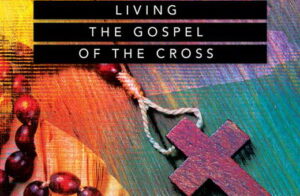 And you who are reading this today, what will you do? Do you not think that God calls you into his service? What have you already done for God in your life? Is it not time to prefer God to your father and mother, to your sons and daughters? The Lord needs you for his Church! It is time! Wait no longer! It is now or never! Who among you will be the next priest of the Lord, even if your father or mother have other plans for you? Who will be the next monk or nun who will leave his or her parents to gain brothers and sisters in Jesus Christ? Who will say “YES” to the Lord’s call in the year 2002?
And you who are reading this today, what will you do? Do you not think that God calls you into his service? What have you already done for God in your life? Is it not time to prefer God to your father and mother, to your sons and daughters? The Lord needs you for his Church! It is time! Wait no longer! It is now or never! Who among you will be the next priest of the Lord, even if your father or mother have other plans for you? Who will be the next monk or nun who will leave his or her parents to gain brothers and sisters in Jesus Christ? Who will say “YES” to the Lord’s call in the year 2002?
Jesus said it: “A disciple is not above his teacher, but every one when he is fully taught will be like his teacher.” In other words, every Christian must be another Christ! Thus, if Jesus bore his cross for the sins of men, then we too must bear our cross for the sins of men, and for our own sins in particular! But above all, if, after having undergone the trial of the cross, Jesus was resurrected from the dead, then we too will be resurrected, with Jesus and like Him, after having undergone the trial of the cross, that is, the trial of fidelity in accomplishing the Will of God!
Death and Resurrection are inseparable: “he who loses his life for my sake will find it.” He who has given his life for Christ will regain his life for all eternity! For he who gives his life for the love of God is already resurrected in his soul, and this resurrection of the soul is the pledge of the resurrection of the body. This, moreover, is what is already realized when we communicate of the Eucharist: for he who is truly united to Jesus, present under the species of the bread and wine, receives the force and power of truly uniting himself to the sacrifice of Christ in view of the final resurrection. “This is the bread which comes down from heaven, that a man may eat of it and not die.”
The message is clear: to receive a Christian because he is an envoy of God is to receive Christ himself! But, for this, the Christian must acknowledge himself to be an envoy of God, that is, to have been called by God to bring the Good News of Salvation in Jesus Christ to the entire world… And this is the problem: who will respond to God’s call? Who will believe in this call and dare to proclaim the Word of God to the entire world? In a word, who will – like Mary, the Mother of Jesus – believe “that there would be a fulfilment of what was spoken to her from the Lord”?
 If God calls you into his service, look at how much good you can accomplish with the help of his grace! All who will receive you as a servant of the Lord will be rewarded by God himself! Is this not wonderful? Is this not an extraordinary service that you can provide to those around you? So who would still hesitate? Who would not rush to consecrate himself to God for his entire life, knowing that he can accomplish so much good for the entire world? Where is the noble heart that would betray itself by refusing to hear the Lord’s call?
If God calls you into his service, look at how much good you can accomplish with the help of his grace! All who will receive you as a servant of the Lord will be rewarded by God himself! Is this not wonderful? Is this not an extraordinary service that you can provide to those around you? So who would still hesitate? Who would not rush to consecrate himself to God for his entire life, knowing that he can accomplish so much good for the entire world? Where is the noble heart that would betray itself by refusing to hear the Lord’s call?
To follow Jesus is something easy to do, for the grace of God is all-powerful! He who receives Jesus in the sacrament of the Eucharist, with a profound faith and with great charity, cannot hesitate to follow the Master, and go wherever he is told to go! May the Most Blessed Virgin Mary intercede for all those who will receive communion today, in order that the Holy Spirit might guide them and enlighten them, that they might accomplish his Will!
21/6/20 12th Sunday in Ordinary Time
Fr. Joseph A Pellegrino
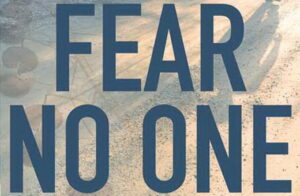 In the Gospel reading for this Sunday Jesus says, “Do not let others intimidate you.” He tells us to keep our priorities straight. He tells us that we should not even be afraid of people who could kill us. “Do not fear those who deprive the body of life but cannot destroy the soul.” In one of the most beautiful passages in the New Testament, Jesus says, “Are not two sparrows sold for next to nothing? Yet not a single sparrow falls to the ground without your Father’s consent. As for you, every hair of your head has been counted; so do not be afraid of anything. You are worth more than an entire flock of sparrows.”
In the Gospel reading for this Sunday Jesus says, “Do not let others intimidate you.” He tells us to keep our priorities straight. He tells us that we should not even be afraid of people who could kill us. “Do not fear those who deprive the body of life but cannot destroy the soul.” In one of the most beautiful passages in the New Testament, Jesus says, “Are not two sparrows sold for next to nothing? Yet not a single sparrow falls to the ground without your Father’s consent. As for you, every hair of your head has been counted; so do not be afraid of anything. You are worth more than an entire flock of sparrows.”
The Lord also says in that passage, “Fear Him who can throw body and soul into Gahanna.” This is not a popular concept in our society. We emphasize God’s compassion and mercy, and this is good, but we tend to refuse to acknowledge His justice. In our own minds, we transform God into an imaginary figure that will not respond to our rejection of His life and laws. For example, a man commits adultery, leaves his wife and children, and then says, “God understands.” Well maybe the god of his imagination might understand, but the real God was present when marriage vows were made to Him and to his wife. God sees the turmoil the selfish man thrust upon a good wife and their beautiful children. God’s mercy is always available, but if the man, or if any of us refuse to acknowledge our sins and seek forgiveness, we are committing the deadly sin of presumption, and, in effect, denigrating God to a creature of our imagination.
But if we live with a reverence and respect for the Lord, the biblical Fear of the Lord, if we do all we can to be God-fearing, then we do not have to be afraid of anything. When we live with a reverence and respect for the Lord, then all those concerns that the media delights in frightening us with will diminish. Will the corona virus destroy half the population of the world similar to how the Black Plague destroyed half the population of Europe? We certainly pray that it will not, but we also know that live or die what matters is that we belong to the Lord. Will the world end this year? Everything else seems to be going wrong in 2020, so maybe, but probably not. The end of the world does not matter as long as we are united to God. Will World War III erupt when we lest expect? Maybe, probably not. Nevertheless, it does not matter as long as we are united to God. Will Hurricane Mojo devastate the west coast of Florida destroying our homes? Maybe, probably not. But it does not matter as long as we are united to God. Will people attack us for being Christian? Absolutely. In fact there are many people in sections of Africa and India that are being attacked for being Christian every day. Will we be disparaged because we are against abortion, against capital punishment, against euthanasia, against taking children from their parents? We certainly will be attacked for promoting the totality of respect life, but disparagement does not matter as long as we are united to God.
We have nothing to fear as long as we fear the Lord. We are a lot more important to our Loving Father than a flock of sparrows; yet not one sparrow falls to the ground without our heavenly Father’s concern. How much more does God value those creatures who are made in His image and likeness? We are worth infinitely more than many sparrows.
 The devil has three terrible lies with which he assails us, sometimes directly, sometimes subtly. The first of the devil’s lies is: You are not good enough. To that God answers, “I have made you good enough. I became one of you. I died for you; so I could raise you up with me to eternal life.” The second lie of the devil is: You are alone. God answers, “I am with you always. I know you. I know every hair on your head. I know what you are going through. Together we can conquer all challenges, all fear.” The third lie of the devil is one which all liars try to convince others of, that lie is simply: the other person is lying. In the case of the devil, his third great lie is that God has deceived us. He used this to great effect in the biblical sages’ story about original sin. The devil told Adam and Eve that God was deceiving them to keep them from being like God. In our modern times, some people question that there might be other ways to live than that presented by the Church. To the accusation that God lies, God answers, “I am the Way, the Truth and the Life.”
The devil has three terrible lies with which he assails us, sometimes directly, sometimes subtly. The first of the devil’s lies is: You are not good enough. To that God answers, “I have made you good enough. I became one of you. I died for you; so I could raise you up with me to eternal life.” The second lie of the devil is: You are alone. God answers, “I am with you always. I know you. I know every hair on your head. I know what you are going through. Together we can conquer all challenges, all fear.” The third lie of the devil is one which all liars try to convince others of, that lie is simply: the other person is lying. In the case of the devil, his third great lie is that God has deceived us. He used this to great effect in the biblical sages’ story about original sin. The devil told Adam and Eve that God was deceiving them to keep them from being like God. In our modern times, some people question that there might be other ways to live than that presented by the Church. To the accusation that God lies, God answers, “I am the Way, the Truth and the Life.”
“Fear the Lord and do not be afraid of anything.” the Lord says. You are worth more than many sparrows.
14/6/20 Corpus Christi
Msgr. Joseph A. Pellegrino
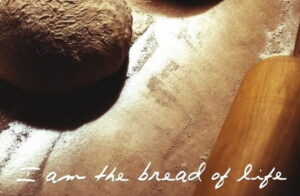 Today’s celebration focuses on the Gift of the Last Supper, the Gift of the Eucharist. This feast is relatively new in the Church. It was instituted in the thirteenth century through the influence of St. Julianna of Monte Cornellion, sometimes referred to as Julianna of Liege. She was deeply devoted to the Eucharist and wanted others to stop their lives for one day and celebrate this great gift. In 1246, she persuaded her bishop to make this a feast day for the Diocese of Liege. Pope Urban IV declared it a Feast for the entire Church in 1264.
Today’s celebration focuses on the Gift of the Last Supper, the Gift of the Eucharist. This feast is relatively new in the Church. It was instituted in the thirteenth century through the influence of St. Julianna of Monte Cornellion, sometimes referred to as Julianna of Liege. She was deeply devoted to the Eucharist and wanted others to stop their lives for one day and celebrate this great gift. In 1246, she persuaded her bishop to make this a feast day for the Diocese of Liege. Pope Urban IV declared it a Feast for the entire Church in 1264.
Today’s feast is meant to help us grow in the understanding of the Eucharist and in our reverence for this great sacrament. We certainly need this reminder. We have the Blessed Sacrament in the tabernacle behind our altar, but many times we ignore this Presence and treat the Church merely as a meeting place. We need to genuflect when we enter a pew and then spend a few moments in prayer, recognizing the One before whom we are kneeling.
There are many ways that the Lord is present. He is present in the beauties of nature, and in the smile of a baby. He is He is present where two or three are gathered together in His Name, and He is present in the Word of Scripture. But the greatest presence of the Lord possible for us on earth is the Real Presence of the Lord in the Blessed Sacrament.
This is a day for us to reflect on what exactly happens at Mass. Bread and Wine become the Body and Blood of the Lord. They do not symbolically become the Lord. They become the Lord. They do not signify the Lord. They are the Lord. Communion is not just the union of the community. It is the union of the community with Jesus Christ, present in each person who receives communion and present in all of us together. I visited a Diocese once where the Bishop emphasized this by having everyone who receives remain standing and singing until the last person in the community received, and then the entire community knelt together and prayed silently with the One who united them.
When we receive communion we are united through Christ with those present here and those present throughout the world. I knew a young couple who often were apart on Sunday’s due to the husband’s traveling for work. They used to try to go to Mass at the same time so they could be united together in the Eucharist by the One who united them together in the Sacrament of Matrimony.
There is room for a little Eucharistic theology here, something far deeper than we could present to our little children when they are prepared for their First Holy Communion. At Mass, the substance of the bread and wine are changed, whereas the accidents, the appearance remains the same. Let me try to explain this mystery this way. Many of you have dogs. When you go home, your dog will jump on you, lick you, and act as though you have been away for a month. Of course, if you have a cat, your cat will just ignore you. But back to your dog. You might look at your dog and say something like, “How’s my Fuzzy-wuzzy today?” Now what if your dog were to answer, “Well, I’m a bit baffled by the fourth chapter of the third book of Immanuel Kant’s Critique of Pure Reason. I was going over it today. Do you think he developed his concept of analytic and synthetic propositions from Descartes or do you think his thought is rooted in Plato?” You would look at your dog and say, “Fuzzy-wuzzy?” Or you might say, “Immanuel who?” But you would realize that somehow your dog was no longer a dog, but a rationale human being in a dog’s form. The rationale human being part is the substance; the dog part is the accidents.
In the Eucharist, the bread and wine looks like bread and wine, and it has all the physical qualities of bread and wine. If you were to look at a consecrated host in a microscope, you would see molecules relative to bread, not human tissue or human blood, the accidents have not changed. However, the substance has changed; it is now the Body and Blood of Christ.
By the way, last Sunday we celebrated the Solemnity of the Holy Trinity. We recognized that the Father, Son and Holy Spirit have the same one substance. They are God. We pray in the creed, consubstantial with the Father, having the same substance. But in the Eucharist the substance changes. The bread and wine become Jesus.
When we receive communion, we receive Jesus. When we approach the Eucharist, we need to do this is a reverential manner, focusing in on the One we are about to receive. It is important for our parents to remind their children continually that they need to receive the Lord with reverence. We need to spend time praying to the Lord within us. These prayers may consist in the communion hymn we share, but should also include quiet time of reflection, time to talk to the Lord within us.
Once the bread and wine become the Body and Blood of Christ, they remain the Body and Blood of Christ. That is why we reverence the Blessed Sacrament in our tabernacles. That is why we spend time before the Blessed Sacrament when we have Eucharistic Adoration. On Sunday evenings, I often place a ciborium with consecrated hosts on the altar after communion as a way of reminding the young people that the One they reverence in the Blessed Sacrament when we have Eucharistic Adoration is the One they have within them at communion.
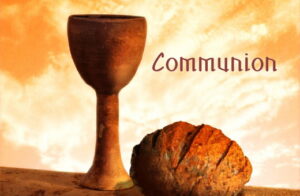 I am shocked and saddened when I hear about people who leave the Catholic Church and join other faiths. I do not doubt their good intentions. Nor do I doubt that they can have an experience of God’s presence in another worshiping community, but how can we, who have been called to the Eucharist, ever leave the Eucharist? Certainly, many good holy people have not been called to the Eucharist. But we have been called. Once we have been admitted into this Presence we cannot leave it. The beliefs of those of other denominations are to be respected. The beliefs of those who do not acknowledge Christ are to be respected. However, we are not respecting others if we hedge on our own faith. No, we need to be who we are. We are Catholics. We need to exalt in that which makes us uniquely Catholic. We need to celebrate the Great, Awesome Gift of the Eucharist.
I am shocked and saddened when I hear about people who leave the Catholic Church and join other faiths. I do not doubt their good intentions. Nor do I doubt that they can have an experience of God’s presence in another worshiping community, but how can we, who have been called to the Eucharist, ever leave the Eucharist? Certainly, many good holy people have not been called to the Eucharist. But we have been called. Once we have been admitted into this Presence we cannot leave it. The beliefs of those of other denominations are to be respected. The beliefs of those who do not acknowledge Christ are to be respected. However, we are not respecting others if we hedge on our own faith. No, we need to be who we are. We are Catholics. We need to exalt in that which makes us uniquely Catholic. We need to celebrate the Great, Awesome Gift of the Eucharist.
The Solemnity of the Body and Blood of the Lord reminds us of who we are, who is present in the tabernacles of our churches, and what we are doing when we receive communion.
7/6/20 The Most Holy Trinity
Fr. Joseph A Pellegrino
 Once a land was claimed for a king it was considered part of the Kingdom. Any assault on that colony would be treated as an assault on the Kingdom, not on a remote land.
Once a land was claimed for a king it was considered part of the Kingdom. Any assault on that colony would be treated as an assault on the Kingdom, not on a remote land.
When we were baptized we were claimed in the name of the Holy Trinity. The priest or deacon poured the water and said, “I baptize you in the name of the Father, Son and Holy Spirit.” From that point, the Kingdom of God was extended to wherever we might be. We are under the protection of the Kingdom against any assault, particularly the assault of evil.
But why were we baptized in the name of the Father, Son and Holy Spirit? Why not simply in the name of Jesus Christ? Why were we not baptized simply in the name of God? We were baptized in the name of the Trinity because we were claimed by all that God is, the fullness of God, the Father, Son and Holy Spirit.
Today’s celebration, the Solemnity of the Holy Trinity, reminds us that we belong to the fullness of God. The readings each give a glance at one of the Persons of the Trinity. In the first reading from Exodus God came down for a cloud and proclaimed His Name, “Lord.” Or perhaps it was the angelic hosts that cried out, “The Lord, the Lord, a merciful and gracious God, slow to anger and rich in kindness and fidelity.” These are the attributes given to the first person of the Trinity, the Father. The Gospel proclaims that God’s love is so great, that He gave his Son to us to save us from the assault of evil. The second reading from Second Corinthians presents Father, Son and Spirit as St. Paul prays that we continue to enjoy the union with the Holy Spirit, the Power of God working through us and uniting us into the Church.
The heart of the mystery is simply that God dwells within us. Sadly, some people continue the concept held by many during revolutionary times that God is removed from us. That is not what God told us. In John 14 Jesus said, “If anyone loves me, he will keep my word, and my Father will love him, and we will come to him and make our home with him.” He is not out there somewhere. He is in here, in the spiritual life that makes a human a child of God. Jesus promised us that He would never leave us alone, and we are not alone. He is with us always, not just outside of us, but within us. The ability to call upon the power of God and the ability to be vehicles of this power forever is the gift of Pentecost, the gift of the Holy Spirit.
Our dignity as sons and daughters of God is far more than a title. We have been claimed by God. We belong to Him. He belongs to us. We have to keep this in mind when others present as normal that where God is not found. We need to ask ourselves, “Is God in the room, in the house, at the party?” If people are enjoying His gifts while still honoring His Presence, then we know He is there. If people are flaunting the basic dictates of morality, then we know He is not there. And we know that it is beneath our dignity as children of God to be there ourselves.
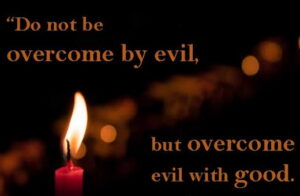 In the sacrament of penance, good people come to a recognition that they have not behaved as well as they should. Sometimes people will have a huge laundry list of serious sins they wish to confess. They will go on and on talking about sexual sin, sins of hatred, sins of disrespecting themselves and others, etc. When they finish, if they have sat across from me, they will often look at me sheepishly expecting a scolding or something. I do not scold people. I simply mention to them, “You are better than that, and you know that. That is why you are here. And I know also that I am better than the many times I have strayed from God.” By better I mean that we are sons and daughters of God. We are children of God. We are better than the forces of the world that are trying to destroy us.
In the sacrament of penance, good people come to a recognition that they have not behaved as well as they should. Sometimes people will have a huge laundry list of serious sins they wish to confess. They will go on and on talking about sexual sin, sins of hatred, sins of disrespecting themselves and others, etc. When they finish, if they have sat across from me, they will often look at me sheepishly expecting a scolding or something. I do not scold people. I simply mention to them, “You are better than that, and you know that. That is why you are here. And I know also that I am better than the many times I have strayed from God.” By better I mean that we are sons and daughters of God. We are children of God. We are better than the forces of the world that are trying to destroy us.
St. Augustine was not just a remote colony. It was part of the Spanish Empire. It could claim the King of Spain as its protector. Savannah was not just a remote colony. It was part of the British Empire. It could claim the King of England as its protector. And we are not just members of a religion. We are part of the Kingdom of God. We claim our God as our protector, our protector from the evil that is trying to destroy us.
Today we are reminded both of who God is, Father, Son and Holy Spirit, and who we are, God’s children carrying His Presence into the world.
31/5/20 Pentecost
“Sunday Scripture Reflections” (Fr. Frank Doyle SJ)
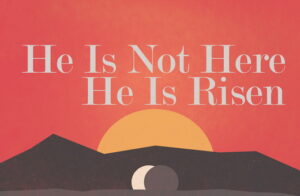 Today is also the birthday of the Church. What is the Church? The Church is basically that community and complex of communities spread all over the world which is continuing the visible presence of God and his work by living openly in the Spirit of Jesus and offering its experience of knowing Christ to the world.
Today is also the birthday of the Church. What is the Church? The Church is basically that community and complex of communities spread all over the world which is continuing the visible presence of God and his work by living openly in the Spirit of Jesus and offering its experience of knowing Christ to the world.
“The Word was made flesh and lived among us.” These words apply not only to Jesus but to all those who are now the visible Body of the Risen Jesus. It is for each of us, individually and in community, to incarnate the Word of God in our world.
Today’s first reading from the Acts of the Apostles gives us one account, perhaps the most familiar one, of how the mission of Christ was transferred to his followers. The scene is full of biblical imagery. There was a sound “like the rush of a violent wind”. In Greek the words used here for “wind” and “Spirit” are very similar. The whole house was filled with the very Spirit of God.
Then “divided tongues, as of fire” were seen resting on each person present. Fire, again, speaks of the presence of God himself. God spoke to Moses from out of a burning bush. As the Israelites wandered through the desert on their way to the Promised Land, a pillar of cloud accompanied them by day, and a pillar of fire by night. God was with his people.
The fire here was in the form of tongues, as if to say that each one present was being given the gift and power to speak in the name of God. And in fact, “all of them were filled with the Holy Spirit and began to speak in other languages, as the Spirit gave them ability.”
Because it was the Jewish feast of Pentecost, the city of Jerusalem was filled with pilgrim Jews from all over the Mediterranean area. They were amazed to hear the disciples speaking to them in their own languages. “How is it that we hear, each of us, in our own language? In our own languages we hear them speaking about God’s deeds of power.” In the Book of Genesis, men tried to build a tower to reach right up to heaven. For such arrogance, they were punished by being made to speak in different languages. No longer able to communicate, they could not finish their project.
The Gospel from John presents us with a different account of the coming of the Spirit.
It is Easter Sunday. The disciples are locked into the house, terrified of the authorities coming to take them away as collaborators with the recently executed Jesus.
Suddenly the same Jesus is there among them. “Peace with you,” is his greeting. It is both a wish and a statement. Where Jesus is there is peace. The presence of Jesus in our lives always brings peace and removes our anxieties and fears.
He shows them his hands and side to prove it is himself: the one who died on the cross and the one who is now alive. Then he gives them their mission: “As the Father has sent me, so I send you.” Their mission and his are exactly the same. Our mission and his are exactly the same.
He then breathes on them. As God breathed on the earth and created the first human being.
In Christ, we become a new creation. The breathing also symbolises the Spirit of God and of Jesus. So he says, “Receive the Holy Spirit.”
With the giving of the Spirit comes also the authority to speak and act in the name of Jesus.
“If you forgive sins, they are forgiven; if you retain the sins of any, they are retained.” This is not just a reference to the Sacrament of Reconciliation and the power to forgive sin. Forgiving sin, reconciling people with God is the very core of the work of Christ and the Christian mission. The disciples are now the Body of Christ, the ongoing visible presence of Christ in the world.
This Body will experience injuries and wounds and disease… It will wander at times far from God. It will need healing and forgiveness and reconciliation. It will also try to bring the same healing and reconciliation to a broken world.
Finally, the Second Reading speaks of the effect of the Spirit on the Christian community. The Church and each community within it reflects unity and diversity. We are not called to uniformity. We are not clones of Christ or each other. Unity presumes diversity and a variety of gifts and talents and responsibilities.
So, on the one hand, we are called to be deeply united in our faith in Christ and in our love for each other. At the same time, each one of us has a unique gift. It is through this gift or gifts that we serve and build up the community. They are not just for ourselves, or for our families and friends. “To each is given the manifestation of the Spirit for the common good.”
 We are like a body. Each body has many members, each with its own particular function, yet they all are ordered to one purpose – the good functioning of the body as a whole. So it is with the Christian community, which is the Body of Christ. Each member is to be aware of his or her particular gift. This gift indicates the role the member has to play in building up the whole Body, the whole community.
We are like a body. Each body has many members, each with its own particular function, yet they all are ordered to one purpose – the good functioning of the body as a whole. So it is with the Christian community, which is the Body of Christ. Each member is to be aware of his or her particular gift. This gift indicates the role the member has to play in building up the whole Body, the whole community.
Today let us ask God to send his Spirit into our hearts. Filled with that Spirit, may we each individually make our contribution to the community to which we belong. And, as a community, may we give clear and unmistakable witness to the Truth and Love of God, revealed to us in Jesus our Lord.
24/5/20 The Ascension of the Lord
“Sunday Scripture Reflections” (Fr. Frank Doyle SJ)
 This is basically the meaning of the Ascension, namely, that Jesus, our triumphant Messiah-King, reigns in glory over all creation. There is no mention of “where” he is or how he got there. Familiar account If we go to the Acts of the Apostles (First Reading) we come to a description which, for many Christians, is the definitive account of the Ascension. Jesus rose on Easter Sunday and then spent 40 days instructing his disciples about the Reign or Kingship of God. During this time they wondered when Jesus was going to restore the Kingdom of Israel. They were still in a state of great misunderstanding about the nature of Jesus’ mission – and their own. As they will eventually come to understand, it is they themselves who will become the agents not of restoring the Kingdom of Israel but, much more importantly, helping to establish the Kingship of God all over the world.
This is basically the meaning of the Ascension, namely, that Jesus, our triumphant Messiah-King, reigns in glory over all creation. There is no mention of “where” he is or how he got there. Familiar account If we go to the Acts of the Apostles (First Reading) we come to a description which, for many Christians, is the definitive account of the Ascension. Jesus rose on Easter Sunday and then spent 40 days instructing his disciples about the Reign or Kingship of God. During this time they wondered when Jesus was going to restore the Kingdom of Israel. They were still in a state of great misunderstanding about the nature of Jesus’ mission – and their own. As they will eventually come to understand, it is they themselves who will become the agents not of restoring the Kingdom of Israel but, much more importantly, helping to establish the Kingship of God all over the world.
Then, one day on the Mount of Olives just outside Jerusalem, as they looked on, he “was lifted up” and “a cloud took him from their sight”. The “lifting up” is to be understood more in a spiritual sense, as it is in John’s Gospel where he speaks a number of times about Jesus being “lifted up” It refers in particular to the Risen Jesus being raised to the glory of God the Father. This is further emphasised by the cloud that took him from their sight. The same cloud that, in the Hebrew Testament, shrouded Mount Sinai as the sign of God’s presence or the cloud that enveloped Jesus at his Transfiguration. Lower your eyes And that is why the disciples need to be told not to stay standing there gawking up at the sky. That is not where the Risen and Ascended Jesus is to be found. If they want to meet him again, they have to go back to Jerusalem, where, in a few days’ time, they themselves will be filled with the Spirit of God and of the Risen and Ascended Jesus. They will become the Body of the Risen and Exalted Jesus, his effective presence to “the ends of the earth”.
As Jesus had told them just before his Ascension, “You will receive power when the Holy Spirit comes on you, and then you will be my witnesses not only in Jerusalem but throughout Judea and Samaria, and indeed to the ends of the earth.” As we saw on previous Sundays, in order to continue being with his disciples, Jesus had to leave them. His “old” presence in one human body, in one small corner of the world, reaching a small number of people, in one tiny period of history now gives way to a new presence that will reach the whole world in every age. From now on wherever there is “love, joy, peace, patience, kindness, faithfulness, gentleness…”, wherever there is truth, love, compassion, justice, freedom, beauty the Spirit of Jesus is there. Same message, different location Today’s Gospel has a similar message. While the scene in Acts takes place in Jerusalem, Matthew has the disciples back on their home ground in Galilee. For, it is in the familiarity of home, not up in the skies, that Jesus is to be found. They are at the mountain “where Jesus arranged to meet them”.
This is the mountain where Jesus once revealed himself to three disciples at the Transfiguration and where he touched them. This is not really an ascension scene. It is understood that the Risen Jesus is already in the glory of the Father. We have here rather an appearance of the Risen Jesus, an appearance that relies on faith. So, on the one hand they worship and, on the other, they have doubts – an experience all of us can have from time to time. The emphasis here is not on the appearance of Jesus but on what he has to say to his disciples. It is in three parts – past, present and future.Jesus, source of all authority First, Jesus tells them that all authority of the Creator God himself, has been given to him. To commit oneself totally to Jesus is to commit oneself to God. Second, Jesus gives the command to “make disciples” of people everywhere. He is thus passing on much of his own authority to his disciples. Pentecost will be the confirmation of this. They are to do what he did. They will have the power to reconcile the sinful with God and with the community and to decide who are not yet ready for reconciliation and full participation in the community’s life.
 The community has standards to keep in order to be a living and credible witness of Jesus and his Gospel. It has a corporate right to maintain those standards. They are to teach, to heal, to break down the divisions that separate people. Baptism in the name of the Father, the Son and the Holy Spirit will be the symbol of incorporation as members of Christ’s Body, as disciples of Jesus. Always with us Third, the Risen and Ascended Jesus is not far away. He is with his followers and will be with them to the end of time. It is a reminder of the promise made at the very beginning of Matthew’s Gospel, before the birth of Jesus: “Behold, a virgin shall conceive and bear a son, and his name will be called Emmanuel and again later on, “Wherever two or three are gathered in my name, there am I among them”. The gift of the Spirit is not mentioned but is clearly implied by the promise of the ongoing presence of Jesus. Today’s feast then is a celebration of Jesus’ glory after his suffering and death – a glory in which we also hope to share. At the same time, we celebrate the ongoing presence of the Risen Jesus among us, a presence which calls on every one of us to be living witnesses to that presence here in our own community and to the ends of the earth.
The community has standards to keep in order to be a living and credible witness of Jesus and his Gospel. It has a corporate right to maintain those standards. They are to teach, to heal, to break down the divisions that separate people. Baptism in the name of the Father, the Son and the Holy Spirit will be the symbol of incorporation as members of Christ’s Body, as disciples of Jesus. Always with us Third, the Risen and Ascended Jesus is not far away. He is with his followers and will be with them to the end of time. It is a reminder of the promise made at the very beginning of Matthew’s Gospel, before the birth of Jesus: “Behold, a virgin shall conceive and bear a son, and his name will be called Emmanuel and again later on, “Wherever two or three are gathered in my name, there am I among them”. The gift of the Spirit is not mentioned but is clearly implied by the promise of the ongoing presence of Jesus. Today’s feast then is a celebration of Jesus’ glory after his suffering and death – a glory in which we also hope to share. At the same time, we celebrate the ongoing presence of the Risen Jesus among us, a presence which calls on every one of us to be living witnesses to that presence here in our own community and to the ends of the earth.
17/5/20 6th Sunday of Easter
“Sunday Scripture Reflections” (Fr. Frank Doyle SJ)
 We see this clearly expressed in today’s gospel passage. Jesus is telling his disciples at the Last Supper that, through the Spirit, he will continue to be with them – and us – forever. He calls the Spirit an ‘Advocate’. In other biblical translations he is called a Counsellor, Helper, Intercessor, Advocate, Strengthener. The Greek word is parakletos. Basically a ‘paraclete’ is someone like a defence lawyer, someone who stands by you in court, gives you support, advice and comfort in difficult situations where you need help. That is precisely the role of the Spirit in our Christian life. He teaches, he guides, he supports, he consoles, he comforts as we try to be faithful in our following of Christ’s Way.
We see this clearly expressed in today’s gospel passage. Jesus is telling his disciples at the Last Supper that, through the Spirit, he will continue to be with them – and us – forever. He calls the Spirit an ‘Advocate’. In other biblical translations he is called a Counsellor, Helper, Intercessor, Advocate, Strengthener. The Greek word is parakletos. Basically a ‘paraclete’ is someone like a defence lawyer, someone who stands by you in court, gives you support, advice and comfort in difficult situations where you need help. That is precisely the role of the Spirit in our Christian life. He teaches, he guides, he supports, he consoles, he comforts as we try to be faithful in our following of Christ’s Way.
He is the Spirit of Truth, the same Truth that Jesus himself represents. “I am the Way: I am Truth and Life.” That Truth is not just a list of dogmas or doctrines. It represents a deep understanding of what life is really about, of how it is to be lived in partnership with one’s brothers and sisters in our common search to make this world truly God’s Kingdom, to make this world the kind of place that God wants it to be. It combines the ideas of wholeness and integrity, a total harmony between the inner and outer self and between the self and God. All this we find in the highest degree in Jesus.
Many in the world do not recognise the Spirit. The ‘world’ here represents all those who live only for themselves, who see everyone else and everything else as stepping stones to their own advancement, their own pleasure and enjoyment. Such people are totally deaf to the Spirit.
We, however, who have accepted Christ and his Gospel do know the Spirit. “He is with you, he is in you.” So, although Jesus tells his disciples that he is about to leave them and they are clearly alarmed and despondent at the idea, he reassures them that he will come back, he will continue to be with them though in a different way.
To the ‘world’ Jesus’ death on the Cross was the end of everything. He had been a flash in the pan. A sensation of a kind in that corner of the world. Jesus Christ the Superstar. But now, as Jesus speaks with his disciples at the Last Supper, it was all about to end in total failure and degradation. But those who can see discern in the cross not dismal failure but the triumph of love over hate, they can see that the object of that love is themselves, they know that Jesus has passed into life and that all those who identify themselves totally with him and his vision of universal Love still enjoy his presence.
“On that day”, the day when Jesus was lifted up in glory on the cross, “you will understand that I am in the Father and you in me and I in you!” And how is that to be brought about? “If you love me you will keep my commandments.” And what are those commandments? Quite simply it is to put Love at the heart of all living. “The greatest love a person can show is to give their life for their friends.” This is what Jesus did for us and what we are called on to do for others. “By this will all know that you are my followers, that you have love for each other.” And what is that Love? As we have mentioned before, this Love is an unconditional desire for the well-being of every single person. Another word for ‘love’ in the Gospel is ‘service’. Not the service of the slave for a master, not the service of the specialist – be he/she doctor, lawyer, priest – for the (inferior) lay person but the service of one brother/sister to another brother/sister without any distinction of rank, race, nationality, religion or whatever.
It is all summed up in this final sentence: “Anybody who receives my commandments and keeps them will be one who loves me; and anybody who loves me will be loved by my Father, and I shall love him and show myself to him/her.” We love God not just by expressing our love directly for him but by the way in which we extend Love to all those around us without any exceptions whatever. And all those who love Jesus will receive the love of the Father. But how to love Jesus? We love Jesus when we love him in our brothers and sisters. “Whatever you do to these the least of my brothers and sisters you do to me.” When we live our lives in this way we will in turn experience God’s love and grow in our familiarity with him.
We see that love of God and Jesus coming to the people of Samaria in the First Reading from the Acts of the Apostles. That love comes to them through the deacon Philip and his companions as they proclaim the message of the Gospel. Great signs of healing follow. The examples of evil spirits being driven out, cripples and paralytics being cured point to the much deeper liberation that comes through our surrender to the Gospel: a real healing and being made whole and a liberation from everything that inhibits our being fully functioning people.
This experience leads to their total acceptance of the Gospel and their being filled with the Spirit of the Father and of Jesus. What they received from Philip, they in their turn will now communicate to others who have yet to hear the message. The lesson for our own Christian lives is so clear. To be a disciple of Christ is to be not only a disciple, a follower but also an apostle, sharing our experience of knowing Christ with others.
The way in which we are to do this is indicated by the Second Reading today. “Reverence the Lord Christ in your hearts and always have your answer ready for people who ask you the reason for the hope that you all have.”
Given that we have an inner conviction of the truth of Christ and his message, we must be always ready and able to give people an adequate explanation of our faith. It is not just something we hold because we were told to do so or because we read about it in a book. It may have begun there but now it is something based on an inner conviction arising from personal experience. As St Paul says, “I know in whom I believe.” And that inner conviction must flow out into our behaviour – our words, our actions, the way we relate with other people whoever they may be.
Peter tells us to share our faith “with courtesy and respect and with a clear conscience, so that those who slander you when you are living a good life in Christ may be proved wrong in the accusations that they bring.” It is a paradox that, like Jesus himself, our very goodness may be the reason we are attacked. But we need also to be sure that we have not given genuine cause for criticism, that we do not proclaim one thing and do something else. We know that happens too often with all of us.
 And Peter adds, “If it is the will of God that you should suffer, it is better to suffer for doing right than for doing wrong.” Indeed the Eighth Beatitude describes as happy and fortunate those who are privileged to be maligned and persecuted for their faithfulness to truth and love and justice. And, if we think that strange, let us not forget that “Christ himself, innocent though he was, died for the guilty , to lead us to God”.
And Peter adds, “If it is the will of God that you should suffer, it is better to suffer for doing right than for doing wrong.” Indeed the Eighth Beatitude describes as happy and fortunate those who are privileged to be maligned and persecuted for their faithfulness to truth and love and justice. And, if we think that strange, let us not forget that “Christ himself, innocent though he was, died for the guilty , to lead us to God”.
So in today’s Mass we rejoice in the gift of the Spirit by which the Father and Jesus his Word continue to be with us and in us and to guide us in the Way which he guarantees our true happiness and fulfilment. How do we know that is true? We just have to follow his invitation: ‘Come and see.’ Many have done so and not been disappointed.
10/5/20 5th Sunday of Easter
“Sunday Scripture Reflections” (Fr. Frank Doyle SJ)
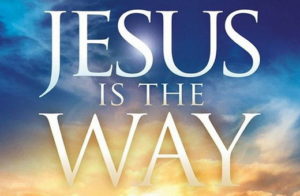 “Do not let your hearts be troubled,” are the encouraging words he speaks to them. “Trust in God still, and trust in me” is a call to total faith in the Father and in Jesus. It is a single act of trust for to have faith in the one is to have equal faith in the other. And, towards the end of the passage, Jesus appeals to the evidence of all they have seen him say and do. “You must believe me when I say that I am in the Father and the Father is in me; believe it on the evidence of this work, if for no other reason.”
“Do not let your hearts be troubled,” are the encouraging words he speaks to them. “Trust in God still, and trust in me” is a call to total faith in the Father and in Jesus. It is a single act of trust for to have faith in the one is to have equal faith in the other. And, towards the end of the passage, Jesus appeals to the evidence of all they have seen him say and do. “You must believe me when I say that I am in the Father and the Father is in me; believe it on the evidence of this work, if for no other reason.”
The disciples cannot be too happy to hear that Jesus is about to leave them. It is no wonder that their hearts are “troubled”. This, in spite of the promise that Jesus is going away to “prepare a place” for them, that he will return to take them with him, “so that where I am you may be too“.
They should have no trouble understanding and accepting this. Jesus has now been with them for three years, has taught them continuously all during this time, they have seen him teaching and working among the people, so “You know the way to the place where I am going,” they are told.
Thomas, the man who likes to confront and the one with the very literal mind, protests: “Lord, we do not know where you are going, so how can we know the way?” He is clearly thinking in geographical terms. In fact, all Jesus’ words about going and coming are spoken on quite a different level of meaning altogether. However, we can be grateful to Thomas for drawing out of Jesus one of the great sayings of John’s Gospel: “I AM the Way — I AM Truth and Life. No one can come to the Father except through me.” It is obvious from all that has already been said that the Way of Jesus, all the coming and going, the “places” which are being prepared are not to be understood in any literal or spatial sense. They are to be understood totally in terms of mutual relationships, the mutual relationships between Jesus, the Father and his followers. The “Way” of Jesus, through his coming suffering and death, will end in the new and abundant life he wants for all his followers.
To follow the Way of Jesus is not to go anywhere. It is to become a special kind of person, a person whose whole being reflects the Truth and Life that Jesus reveals to us. It is to be a person who is totally identified with the vision and the values of Jesus. To be such a person is to be a person of Truth and Life.
Truth is here understood not in a purely intellectual sense. Truth here is that complete integrity and harmony which Jesus himself revealed not only in what he said but in the total manifestation of his life and person. Truth for Jesus was not just something he knew or accepted or believed in; truth for Jesus was what he was in his whole person: thoughts, feelings, actions, relationships. It was that total conformity between his inward self and his outward behaviour. For us to live Truth in that way is also to be fully alive, to be a “fully-functioning person”, responding totally to that abundance of life which Jesus came to give us.
And God the Father is, of course, also Truth and Life. But we go to God the Father through Jesus and we call Jesus the “Way” because he is the visible manifestation in human form of all that his Father is. It is this incarnation of the Father’s being in the human person of Jesus, a man “like us in all things“, which makes him the accessible model for us to grow ever more in the likeness of our God and to experience to the full his love and life in us.
And so Jesus says quite logically, “If you know me, you know my Father too. From this moment you know him and have seen him.” Now it is the naïve Philip’s turn to interject. “Lord, let us see the Father and then we shall be satisfied.” It was the hope of every good Jew some day to see God face to face. “Have I been with you all this time, Philip,” says Jesus (with a tinge of disappointment?), “and you still do not know me? To have seen me is to have seen the Father, so how can you say, ‘Let us see the Father’?”
For, as Jesus continues, he is in the Father and the Father is in him. However, this statement must be understood with some qualifications. Jesus is the Son of God and is one with the Father in all things but to say that when we see Jesus we see God is both true and not altogether true. For Jesus, as we know him, is limited by his humanness. When he speaks, certainly it is God who speaks. When he heals, certainly God heals. When Jesus died on the Cross, God also died? Surely not. God cannot die. The death of Jesus in his humanity was a sublime witness of the love and compassion of the Ever Living God.
Jesus, in his humanity, is but the palest reflection of the infinite Truth, Goodness and Beauty of God. When we see Jesus, we see God but… there is much that we do not see. And so we speak of Jesus as the Way. We go through him to find the total reality of God. A reality that mystics have been given glimpses of but which most of us will have to wait for until after we have left this earth. It is important that we understand this for I find that many people tend to speak rather loosely of the relationship between God the Father and Jesus. If we make Jesus, not the Way, but the End, we can find ourselves with a very reduced God. Philip thought he knew Jesus very well, spending every day with him. Yet he had not come to recognise God in the words and works of Jesus and so he did not really know Jesus.
Today, perhaps, our problem is not so much recognising God in Jesus. In fact, as mentioned, we can go too far in doing so. Our problem is not being able to recognise God in the world and people around us. At the beginning of today’s Gospel, Jesus says that there are many “rooms”, many dwelling places in his Father’s house.
We can understand this, of course, as “heaven” but God’s dwelling is also the Church, every Christian community is a dwelling place of God. And indeed each and every disciple, who believes in Christ, is a part of God’s Temple. There is now no longer for us a material Temple. Furthermore, as Paul told the Romans, “ever since the creation of the world [God’s] invisible nature, namely, his eternal power and godhead, has been clearly perceived in the things that have been made“. This is to say, that not only in Christian communities, but indeed in people everywhere and in the whole of our created environment, God’s presence is shouting out to us. “The world is charged with the grandeur of God,” wrote the poet Gerard Manley Hopkins. Every little flower, every singing bird can say to us, “Who sees me sees the Father”.
Lastly, Jesus has a word for us. “Whoever believes in me [and in my identity with the Father] will perform the same works as I do myself. He will perform even greater works, because I am going to the Father.” The Church and every member of every Christian community is called on to continue the mission of Jesus.
But how can we do greater works than Jesus? And how can we do them because Jesus is going to his Father? The Church and every Christian community is called on to continue the mission of Jesus. That is evident from the Acts of the Apostles onwards. But doing more than he did? Yes, because by leaving us for the Father he passed his mandate on to us.
We can do more than Jesus not in terms of more spectacular signs but because, Jesus in his humanity here on earth, was limited to a very small section of space and time. In his lifetime, he reached only a relatively small number of people. In fact, when he died all he could show for all his preaching and miracles was a handful of women at the foot of the cross. Peter and the rest were nowhere to be seen. Strangely, it was only by his leaving us that the energy and life he brought was released. By his going he set in motion a process by which his message, his Way of Truth and Life, could reach every corner of the world.
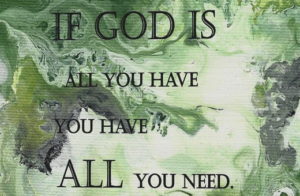 There are now very few places where Jesus’ message has not been heard. Moreover the Pope or some other religious leader, hooked up to satellites, can simultaneously reach literally billions of people. Jesus on earth could not do that.
There are now very few places where Jesus’ message has not been heard. Moreover the Pope or some other religious leader, hooked up to satellites, can simultaneously reach literally billions of people. Jesus on earth could not do that.
But whether we are pope, bishop, priest, office worker, truck driver or housewife – our duty is the same: to lead the people we come in contact along the Way of Jesus – the Way of Truth and Life. By working together, we can do more than Jesus did, or rather he does it through us. The Gospel still needs to be preached with greater enthusiasm, with greater relevance, with greater integrity. As in Jesus’ day, the masses are calling out to be fed and we, the friends and companions of Jesus, have been called to continue to bring the Bread of Life to the world.
Jesus said “Without me you can do nothing“. It is important for us to realise that opposite is also largely true: without us Jesus can do little.
3/5/20 4th Sunday of Easter
“Sunday Scripture Reflections” (Fr. Frank Doyle SJ)
 In today’s Gospel passage, which consists of the first 10 verses of Chapter 10, there seem to be two separate parables. The first is a warning against people who would want to steal the sheep and the second focuses on the relationship between the sheep and their shepherd. The central image, too, is not so much that of the shepherd as of the gate. In fact, later on in the passage, Jesus says, “I AM the Gate”. Here it would seem that Jesus is the Gate of the sheepfold, while the shepherds who come in and out are pastors who are faithful to Jesus. Anyone who does not enter the sheepfold by the gate, for instance, by climbing over the fence or breaking through it, is dangerous and should be avoided. He is “a thief and a brigand” who comes to steal and do harm to the sheep. The genuine shepherd, however, enters by the Gate (Jesus). He is recognised and admitted by the watchman (the leader of the community?) at the gate.
In today’s Gospel passage, which consists of the first 10 verses of Chapter 10, there seem to be two separate parables. The first is a warning against people who would want to steal the sheep and the second focuses on the relationship between the sheep and their shepherd. The central image, too, is not so much that of the shepherd as of the gate. In fact, later on in the passage, Jesus says, “I AM the Gate”. Here it would seem that Jesus is the Gate of the sheepfold, while the shepherds who come in and out are pastors who are faithful to Jesus. Anyone who does not enter the sheepfold by the gate, for instance, by climbing over the fence or breaking through it, is dangerous and should be avoided. He is “a thief and a brigand” who comes to steal and do harm to the sheep. The genuine shepherd, however, enters by the Gate (Jesus). He is recognised and admitted by the watchman (the leader of the community?) at the gate.
The sheep hear and recognise and follow their shepherd’s voice. In a sheepfold where there are the sheep of many shepherds, the true shepherd knows which ones belong to him. He calls them out one by one. They, recognising the voice of their own shepherd, follow him. They will not follow other shepherds, even if called by them. It is a free relationship. The sheep go in and out. They follow, not because they are forced to but by their own choice. The other sheep (belonging to other shepherds) stay behind.
When the shepherd has brought out his sheep to pasture, he goes ahead. And they follow because “they know his voice”. They will not follow a stranger but run away from him, because they do not recognise his voice.
We are told that the disciples failed to understand the meaning of this parable. This is a reaction which is more common in the Synoptic gospels, especially Mark (cf. Mark 4:10-12). Parables are meant for “insiders” and not “outsiders”. So Jesus spells out more clearly what he means. He is the Gate of the sheepfold. Those who enter the sheepfold by any other way are not to be trusted, they are “thieves and brigands”. And the sheep will ignore them. “Anyone who enters through me [the Gate] will be safe.”
Many of the warnings of Jesus here should be read in the context of the story of the blind man in the preceding chapter 9. Here Jesus condemns the blindness of the Pharisees as religious leaders who are totally unfit to bring people to God. They are not good shepherds and they refuse to enter by the Gate.
The passage ends with one of Jesus’ most beautiful statements: “I have come that they may have life and have it to the full.” To follow Jesus is not, as some seem to fear, to live a half life, a life filled with endlessly dire warnings of “Don’t!”. It is to live life, our human life, to the greatest possible fullness. As one writer puts it, “The Gospel is a statement about how human life is best lived.” The same writer also says, “Life with God is good for human beings and should be seen to be so.” True evangelisation consists in making this clear by the way we speak and live. So many people, unfortunately, have the impression that there is something “unnatural” or “super-natural” in being a Christian. Somehow we are not doing a good job.
Today is Vocations Sunday. It is obvious that our Church today is in great need of good shepherds, totally committed to the Way of Jesus. We are asked to pray today especially that our Christian communities will be graced with good shepherds and pastors. It is a pity that we tend to narrow the term “vocation” to those who feel called to the priesthood or what we fall ‘religious’ life, as when we ask, “Do you think you have a ‘vocation’?” Or say, “There are very few ‘vocations’ in our diocese.”
Yet we need to emphasise very strongly that every single baptised person has a ‘vocation’. Everyone is called by God to play a specific role in the Christian community and in the wider community. Unless we Christians see that ‘vocation’ is something that we are all called to, it is not likely that there will be enough people to meet the service needs of our Christian communities. Our Christian communities can only grow and thrive when every member makes a contribution to the well-being of the whole.
Unfortunately, a large number, it seems, decide first on their ‘career’ and only then ask, “How can I be a good Catholic?” (that is, if they do ask the question). It is absolutely basic for us to ask ourselves at all times, “What does God want me to be? What are my particular gifts? How can I offer these gifts in service to the wider community and to my own Christian community?”
If I live my life as a morally good person, “keeping the Commandments” and saying my prayers and “fulfilling my religious obligations” but do not in fact play an active and constructive part in my community, I am not really a Christian in the proper sense. Yet, it seems that that is the way many people live their Catholic lives.
Unless we Christians see that ‘vocation’ as something that we are all called to respond to, it is not likely that there will be enough people to respond to the service needs of our Christian communities and, by extension, the needs of the wider community. There is still among many, one fears, what can be called a ‘supermarket mentality’ where our Christian practice is concerned. The Church is there to provide me with ‘spiritual’ or ‘religious’ ‘goods’ as I need them. But there is a danger that, like supermarkets in some former Communist countries, there may soon be no ‘goods’ available and, worse, no one to distribute them!
Our Christian communities can only grow and thrive when every member makes his or her contribution to the well-being of the whole. When all are giving, all will be receiving in abundance, the abundance that Jesus speaks about in today’s Gospel.
 Today we are asked to “pray” for vocations. There is a danger that, although many will fervently do so, they are praying for other people’s vocations and not their own. To say this prayer with sincerity involves my reflecting on how God is asking me to make a meaningful contribution of myself (not just money) to the building up of our community, our parish.
Today we are asked to “pray” for vocations. There is a danger that, although many will fervently do so, they are praying for other people’s vocations and not their own. To say this prayer with sincerity involves my reflecting on how God is asking me to make a meaningful contribution of myself (not just money) to the building up of our community, our parish.
In fact, one has to be deeply impressed by the number of people who do make a substantial contribution one way or the other to the running of our church communities. Nevertheless, today, Vocations Sunday, challenges each one of us to reflect on how we personally are responding to the call that Jesus is making to each of us right now. As a group or community, we respond to that call by seeing that all that is needed for the maintenance and growth of our community is being generously provided .
26/4/20 3rd Sunday of Easter
“Sunday Scripture Reflections” (Fr. Frank Doyle SJ)
 It begins with two disciples on the road leaving Jerusalem. For Luke the focal point of Jesus’ mission is Jerusalem – it was the goal to which all Jesus’ public life was headed and from there the new community would bring his Message to the rest of the world.
It begins with two disciples on the road leaving Jerusalem. For Luke the focal point of Jesus’ mission is Jerusalem – it was the goal to which all Jesus’ public life was headed and from there the new community would bring his Message to the rest of the world.
They are on their way to a place called Emmaus, about 7 miles (11 km) from Jerusalem, whose exact location is not now known. It does not really matter and that is the point. They were on the “road” – they are pilgrims on the road of life. Jesus is the Way, the Road. The problem is that at this moment they are going in the wrong direction.
The Risen Jesus joins them as a fellow-traveller. “Something” prevents them from recognising him. What was that “something”? Their presumption that he was dead? Was it their pre-conceived idea of what Jesus should look like?
Seeing their obvious despondency and disillusionment, he asks what they are talking about. With deliciously unconscious irony they say, “You must be the only person staying in Jerusalem who does not know the things that have been happening there these last few days.”
Jesus plays them out a little more with a totally innocent-sounding, “What things?” He wants to hear their version of what happened. To them the death was the failure of Jesus’ mission. They refer to him as a “prophet” as if, after the debacle of his death, they could not see in Jesus the Messiah they had earlier acknowledged. “We were hoping (‘hlpizomen, elpizomen, sperabamus) that he would be the one to set Israel free.” Again the delicious irony of their own words is lost on them. For them, freedom meant liberation from the tyranny of foreign domination and perhaps the inauguration of the Kingdom of God as they understood it.
They are puzzled also by the stories of the women describing an empty tomb and angels – but there is still no sign of Jesus. More irony! They are addressing these very words to Jesus!
Jesus then gives them a lesson in reading the Scriptures and shows them that all that happened to Jesus, including his sufferings and death, far from being a tragedy was all foreordained. Luke is the only writer to speak clearly of a suffering Messiah. The idea of a suffering Messiah is not found as such in the Old Testament. Later, the Church will see a foreshadowing of the suffering Messiah in the texts on the Suffering Servant in Isaiah.
This story emphasises that all that happened to Jesus was the fulfilment of Old Testament promises and of Jewish hopes. All through Acts, Luke will argue that Christianity is the fulfilment of the hopes of Pharisaic Judaism and its logical development. In many respects, Matthew’s gospel has a similar theme.
As they reach their destination, Jesus makes as if to continue his journey. However, they extend their hospitality to the stranger. “I was a stranger and you took me in.” “It is nearly evening time and the day is almost over,” they say. So Jesus goes in to stay with them. Wonderful words. But it would not have happened if they had not opened their home to him.
As they sat down to the meal, Jesus, the visitor unexpectedly acting as host, took the bread, said the blessing over it, broke it and gave it to them. And in that very act they recognised him. This is the Eucharist where we recognise the presence of Jesus among us in the breaking of bread. Not just in the bread, but in the breaking and sharing of the bread and in those who share the broken bread.
Then Jesus disappears. But they are still basking in the afterglow. “Did not our hearts burn within us as he talked to us on the road and explained the Scriptures to us?” In the light of all this experience, they turn around [conversion!] and go back along the road to Jerusalem from which they had been fleeing. There they discover their fellow-disciples excited that the Lord is risen and has appeared to Simon. And they tell their marvellous story and how “they had recognised him at the breaking of bread”.
All the ingredients of the Christian life are here.
– Running away from where Christ is to be found. We do it all the time.
– Meeting Jesus in the unexpected place or person or situation. How many times does this happen and we do not recognise him, or worse mistreat him?
– Finding the real meaning and identity of Jesus and his mission in having the Scriptures fully explained. Without the Scriptures we cannot claim to know Jesus. Yet how many Catholics go through life hardly ever opening a bible?
– Recognising Jesus in the breaking of bread, in our celebration of the Eucharist. The breaking and sharing of the bread indicates the essentially community dimension of that celebration, making it a real comm-union with all present.
– The central experience of Scripture and Liturgy draws us to participate in the work of proclaiming the message of Christ and sharing our experience of it with others that they may also share it.
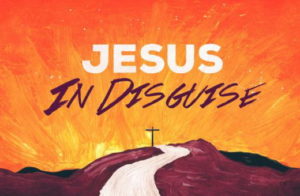 – The importance of hospitality and kindness to the stranger. “I was hungry… and you did/did not feed…” Jesus is especially present and to be found and loved in the very least of my brothers and sisters.
– The importance of hospitality and kindness to the stranger. “I was hungry… and you did/did not feed…” Jesus is especially present and to be found and loved in the very least of my brothers and sisters.
The scene is also a model of the Eucharist:
Those walking together on the Road gather together and meet Jesus, first, in the Liturgy of the Word as the Scriptures are broken open and explained, and, second, in the Liturgy of the Eucharist, where what Jesus did for us through his suffering, death and resurrection is remembered with thanksgiving and the bread that is now his Body and the wine that is now his Blood, is shared among those who are the Members of that Body to strengthen their union and their commitment to continuing the work of Jesus.
19/4/20 Divine Mercy Sunday (2nd Sunday of Easter)
“Sunday Scripture Reflections” (Fr. Frank Doyle SJ)
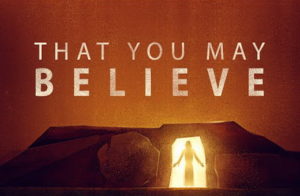 “Peace with you!” is his greeting. It is the normal Jewish greeting of “Shalom”. But, coming from Jesus, the Prince of Peace, to this group of frightened people, it has special meaning. And, in the Greek, there is no verb so it can be taken either as a wish or a statement of fact – where Jesus is truly present to us, there is peace.
“Peace with you!” is his greeting. It is the normal Jewish greeting of “Shalom”. But, coming from Jesus, the Prince of Peace, to this group of frightened people, it has special meaning. And, in the Greek, there is no verb so it can be taken either as a wish or a statement of fact – where Jesus is truly present to us, there is peace.
He shows them his hands and side. He is not just a disembodied ghost but the same Jesus who died on the cross – and yet there are differences.
The disciples’ fear is gradually transformed into an unspeakable joy at the return of their Master. He continues to speak to them. Repeating his greeting of peace, he proceeds to give them their mission. There is no critical word of their failure to stand by him in his final moments. “As the Father sent me, so am I sending you.”
Then he breathed on them. The breath of life, reminiscent of God breathing on the dust of the earth and creating human life in the first man. It is also the breath of the Spirit, the Spirit of the Father and of the Son: “Receive the Holy Spirit.”
A new mission
Then comes their mission: “For those whose sins you forgive, they are forgiven; for those whose sins you retain, they are retained.” Is that all he gave them to do? It does not seem much. What about all the other things the Gospel talks about? And yet, it is all there in those words.
There is no full forgiveness of sin without reconciliation. Their task is to bring about the reconciliation of all with their God, with their brothers and sisters and with the whole of creation. It can also be summed up in the letters JPIC – Justice, Peace and the Integrity of Creation.
That is their primary mission, to which all their other efforts and teaching will be subordinated. To restore right relationships between God and his people and among the people themselves. That is a pretty big programme.
In practice, it involves a lot more than just saying words of forgiveness. It involves much more than “going to confession” and being absolved by a priest. It involves working to create a whole society based on right relationships with God, between people and with the rest of the creation. It is the making of the Kingdom of God. That is a pretty big programme.
And, of course, their mission is also ours. The words of Jesus spoken to them are also spoken to us.
An ideal community
This is very well expressed in the description of the ideal Christian community we find in the First Reading. “The whole group of believers was united, heart and soul”. This is the unity of community and fellowship.
“No one claimed for their own use anything they had, as everything they owned was held in common.” Or in the Marxist version: “To each according to his need; from each according to his ability.” None of that individualistic greed and competitiveness that so marks our societies today.
As a result, “none of their members was ever in want” because those who had wealth gave it to the community. “It was then distributed to any members who might be in need.”
Can we find that today anywhere in the Church? Actually yes. It is present in communities of religious life, where it is properly lived. But it needs to be lived more widely among all Christians. The Basic Christian Community and other forms of lay community living are moving in that direction.
The Second Reading speaks of keeping God’s commandments. And, the writer tells us, those commandments are not difficult. That may not be our experience and yet it is true because those commandments are only a call to be totally true to our human nature. They are not asking us to do things which are not in accord with our nature or transcending our nature. And, of course, in the New Covenant, the commandments in question are those telling us to love each other as Jesus loves us, to be agents of peace and reconciliation and justice, which ties in with the Gospel and the First Reading.
The doubter
On that day, there was one apostle missing – Thomas. When he was told that his companions had “seen the Lord”, he said he would not believe unless he saw with his own eyes the marks of the wounds and put his hand in the wound in Jesus’ side.
And then, one week later – today, in fact – they were all, including Thomas, gathered together in the room. Although the doors were locked, Jesus was suddenly there among them. After the usual greeting of peace, he invited Thomas not just to look but to touch the wounds in his hands and side. “Do not doubt any longer but believe.” Thomas yields completely to the experience. “My Lord and my God!” It is one of the most powerful acknowledgements of Jesus’ real identity in the whole Gospel and the only time anyone directly calls him God.
Thomas yields completely to the experience. “My Lord and my God!” It is one of the most powerful acknowledgements of Jesus’ real identity in the whole Gospel and the only time anyone directly calls him God.
Ironically, too, it is an act of faith. Thomas could not see directly that Jesus was God. No one can see God directly. But the experience convinced Thomas that he was in the presence of God himself.
The following words of Jesus are meant to encourage us, all those who have not had Thomas’ experience: “Happy are those who have not seen and yet believe.” We, too, need to be always open to experiences where God’s unmistakable presence can be recognised.
Finally, we are reminded that everything that is in the Gospel is to help us to come to that stage of faith by which we believe “that Jesus is the Christ, the Son of God” and that, through this belief, we may find life.
Untold numbers of people have tried this and found that it is altogether true. They have found in following Christ a meaning, a direction and a very special quality to their lives which cannot be found anywhere else. May that be our experience too.
12/4/20 Easter Sunday
“Sunday Scripture Reflections” (Fr. Frank Doyle SJ)
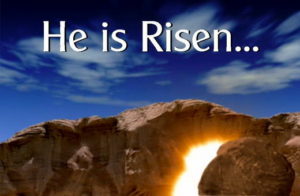 The message of Easter is first communicated by the empty tomb. The death of Jesus was an observable and observed fact by both friends and enemies. No one saw the resurrection. It did not involve resuscitation of a corpse.
The message of Easter is first communicated by the empty tomb. The death of Jesus was an observable and observed fact by both friends and enemies. No one saw the resurrection. It did not involve resuscitation of a corpse.
The first witnesses that something had happened were women. And what they saw was not Jesus but his empty tomb. They were puzzled and alarmed. Then Peter and the Beloved Disciple go to investigate. They find the empty tomb as the women reported. Peter just sees a loss, the absence of a body. But the other disciple sees with the eyes of one who loves and he sees a void filled with the presence of the Risen One. (Our lives too may seem to be marked by absence and loss but those who see with the eyes of love may see them filled with the presence of the risen Lord.)
The Beloved Disciple sees the empty tomb and believes. He sees what cannot be literally seen. He suddenly understands the teaching of Scripture and the words of Jesus that he must “rise from the dead”. Every disciples who loves Jesus is one who sees — and believes with all his/her heart in a Risen Lord.
It is clear from the Gospel accounts that the Risen Jesus is the same person who died on the cross. It is equally clear that he is so different that his followers have difficulty in recognising him. In various post-resurrection scenes he does not even look the same. For Jesus now has the face of Everyone.
He is known and recognised only by faith. The basis of that faith is the fact of the empty tomb and the extraordinary transformation of the disciples. They were not expecting to see their Master again. At the time of his arrest and execution, they had fled in all directions. They were terrified and in hiding.
When they finally did realise that he was still with them, even if in a very different way, they were transformed from fearful people to a group overcome with joy and enthusiasm and afraid of nothing. They were now ready to endure what their Master had gone through, to give their lives for Truth and Love, and many of them did so.
How are we to share in all of this? In the reading from 1 Corinthians today we are reminded how at the Jewish Passover the Jews were expected to throw out all the old, leavened bread and to prepare new, unleavened bread. The fermentation caused by the leaven, the yeast, was seen as a kind of corruption. As Paul says, “You must know how even a small amount of yeast is enough to leaven [i.e. corrupt] all the dough”. (Remember the parable Jesus told about a small amount of leaven penetrating the whole batch of dough?)
So, Paul goes on, “Christ our Passover has been sacrificed. Let us celebrate the feast, then, by getting rid of all the old yeast of evil and wickedness, having only the unleavened bread of integrity and truth.” Easter is not only a time for celebration, for bunnies and Easter eggs, for new clothes and fancy bonnets — it is also a time for deep inner renewal.
It is a time to recommit ourselves to the meaning of our Baptism and Confirmation. We need to remember that as we break and share together the unleavened bread of the Eucharist, we share the Body of Christ, and that body embraces both Jesus and the whole community.
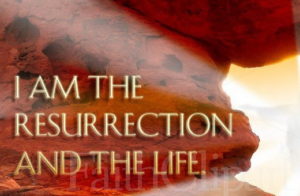 Finally, Peter in the First Reading from the Acts of the Apostles speaks of the mandate that follows from the resurrection. He and his fellow disciples are to proclaim the Good News about the Risen Jesus. The Jesus who will give new life to every single person who accepts him as Lord, who accepts him as the Way, Truth and Life. Peter and his fellow disciples are called “apostles”, people sent out on a mission, “ambassadors for Christ”, Paul calls them.
Finally, Peter in the First Reading from the Acts of the Apostles speaks of the mandate that follows from the resurrection. He and his fellow disciples are to proclaim the Good News about the Risen Jesus. The Jesus who will give new life to every single person who accepts him as Lord, who accepts him as the Way, Truth and Life. Peter and his fellow disciples are called “apostles”, people sent out on a mission, “ambassadors for Christ”, Paul calls them.
We, too, share that mission. We are not just disciples, followers of Jesus. We are also meant to be his living ambassadors. No one will know about Jesus and what he means for our lives unless we tell them.
Many people got baptised yesterday. Not a single one of them came to the Church without the intervention of some Christian(s) somewhere. The Good News about Jesus is not to be kept a secret. There are many people out there waiting to hear it. They are depending on you and me, members of Christ’s Body, to tell them.
5/4/20 Palm Sunday
“Sunday Scripture Reflections” (Fr. Frank Doyle SJ)
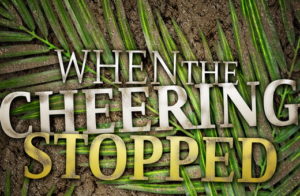 Today’s liturgy combines both a sense of triumph and tragedy. Very importantly, we are reminded at the beginning, that we are about to commemorate the triumph of Christ our King. We do this through the blessing of palms, the procession and the joyful singing. And the celebrant wears red vestments. We need to keep this in mind as we proceed in the second half to hear the long tale of the sufferings and indignities to which Jesus was subjected. A tale not relieved — yet — by the proper end of the story: the Resurrection to new life. So as we listen to the Passion story unfolding let us keep in mind the Hosannas as Jesus our King entered Jerusalem, his city. Very soon it will be difficult to recognise our King in the battered, scourged, crowned-with-thorns, crucified remnant of a human being.
Today’s liturgy combines both a sense of triumph and tragedy. Very importantly, we are reminded at the beginning, that we are about to commemorate the triumph of Christ our King. We do this through the blessing of palms, the procession and the joyful singing. And the celebrant wears red vestments. We need to keep this in mind as we proceed in the second half to hear the long tale of the sufferings and indignities to which Jesus was subjected. A tale not relieved — yet — by the proper end of the story: the Resurrection to new life. So as we listen to the Passion story unfolding let us keep in mind the Hosannas as Jesus our King entered Jerusalem, his city. Very soon it will be difficult to recognise our King in the battered, scourged, crowned-with-thorns, crucified remnant of a human being.
Why did Jesus have to undergo such a terrible fate? Basically, there were two reasons. One was political. Jesus had become the object of hate and prejudice by people who saw in him a threat to their religious authority and political standing. He had to be got rid of one way or another. But secondly, what happened was all in accordance with the Father’s will. That is not to say, as some people seem to imply, that God wanted to kill Jesus and engineered everything to happen that way. There are perfectly understandable reasons why Jesus’ behaviour led to his suffering and death.
At the same time, this behaviour was the result of Jesus’ unconditional love for every person he met — including his enemies. And Jesus’ love for everyone was a mirror of the same love of the Father. It was a love so intense that Jesus was ready to sacrifice his own life for it. “Greater love [agape, agaph] than this no one has than to lay down one’s life for one’s friends.” And, we might add, for those who have made us their enemies as well.
In doing so, Jesus identified with his Father’s will, namely, that all come to be aware of God’s unconditional love for them. It is St Paul who says that it is not altogether unusual for a person to die for good people. It is altogether unusual for one to give up their life for evildoers. And, basically, that is what all of us are in one way or another.
What we see in today’s readings is God using perfectly human situations in order to convey, in dramatic fashion, his relationship to us. And it is only with genuine faith that we are able to see the work of God in the tragic death of Jesus. As Paul says, for many of the Jews it was a stumbling block and for many non-believers sheer nonsense.
Today’s readings also tell us that Jesus suffered. And he really did suffer. There are those who tend to minimise the sufferings of Jesus because “after all, he was the Son of God, he had a ‘Divine Nature’.” This is to deny one of the most central teachings of the New Testament that Jesus was one hundred percent a human being and, except for sin, shared our human experiences in every way. In fact, as a particularly sensitive human person, it is likely that, when Jesus suffered, his pain was more intense than that of others.
Jesus suffered obviously in his body and he underwent pain that we associate with the more barbaric forms of torture in our own day. But he must also have suffered psychologically and this pain may have been even more intense. He saw his mission collapse all around him in total failure. His disciples had all, for the sake of their own skins, taken to their heels. Would anyone remember anything he taught or did? There was, at this special time of need, a terrible loneliness. His disciples fell asleep in the garden when he especially needed their support. They ran off as soon as people came to arrest Jesus. Even the Father seems to be silent, the Father who could send legions of angels to rescue him – but apparently did nothing. There is the final poignant cry from the cross: “My God, my God, why have you forsaken me?”
Yet through it all Jesus’ dignity, power and authority keep shining through, making his captors seem to be the ones on the defensive. After the prayer in the garden, Jesus stands up to face those arresting him full of an inner strength and authority. He stands in silent dignity before his judges, refusing to be intimidated. In the midst of his own pain and indignities, he can continue to think of the needs of others and can, after his own teaching, pray for and forgive his enemies.
How did Jesus save us? Was it because he suffered and died for us? Was it because he made the ultimate sacrifice? Was it not because, in the words of the Second Reading from Philippians, he “emptied himself” totally and in so doing became filled with the Spirit of his Father. He clung to nothing; he let go of everything. (That is what we find so hard.)
At the moment of his death, Matthew in today’s Gospel reading says that Jesus “released the spirit”. It is a way of saying that he breathed his last breath and died. But it also has the other meaning that the life, sufferings and death of Jesus, when properly understood, released a power into the world, the power of the Spirit of God, a Spirit with which Jesus himself was filled. Jesus’ followers will soon become filled with that Spirit also.
 Jesus’ disciples, energised by the power of their Lord and Master, will go through similar experiences to his. They, like Jesus in the garden, will be filled with fear but, later on, they will be filled with a fearless courage and joy. No matter who threatens them, no matter that they are thrown into jail or that members of their communities are murdered and executed, they will continue to preach fearlessly the Gospel of Truth and Love. The death of Jesus, which we commemorate today, was not in the end a sign of failure. It was Jesus’ moment of triumph and victory. The same can be said of the long line of martyrs and witnesses over 2,000 years.
Jesus’ disciples, energised by the power of their Lord and Master, will go through similar experiences to his. They, like Jesus in the garden, will be filled with fear but, later on, they will be filled with a fearless courage and joy. No matter who threatens them, no matter that they are thrown into jail or that members of their communities are murdered and executed, they will continue to preach fearlessly the Gospel of Truth and Love. The death of Jesus, which we commemorate today, was not in the end a sign of failure. It was Jesus’ moment of triumph and victory. The same can be said of the long line of martyrs and witnesses over 2,000 years.
So, as we participate in the liturgy of Holy Week, let us not concentrate simply on the sufferings of Jesus as if there was something good about suffering. Those sufferings only have meaning because they lead to resurrection, new life and new joy. The pain and sufferings of our lives are not the punishments of God, still less are they to be sought out. Suffering, pain, sickness are not in themselves desirable. They become, however, sources of good when they help us to become more mature, more loving, more caring, more sympathetic people — in other words when they lead us to be more like Jesus himself, when they lead to our own liberation and the liberation of others.
29/3/20 5th Sunday of Lent
“Sunday Scripture Reflections” (Fr. Frank Doyle SJ)
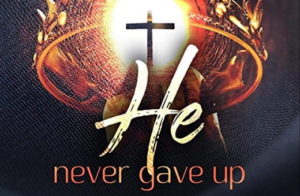 Jesus then gives his reason for wanting to go south. “Our friend Lazarus is ‘asleep’ and I am going to wake him.” You can almost hear the reaction of the disciples: “You are putting yourself – and us – in great danger just to wake someone up?! Why disturb him? Sleep is good for him.”
Jesus then gives his reason for wanting to go south. “Our friend Lazarus is ‘asleep’ and I am going to wake him.” You can almost hear the reaction of the disciples: “You are putting yourself – and us – in great danger just to wake someone up?! Why disturb him? Sleep is good for him.”
Then they are told bluntly, “Lazarus is dead.” For the believer, death is but a sleep from which one wakes to a new and unending life. And Jesus says he is glad, not because a close friend has died, but because it will be an opportunity for his disciples to know Jesus better, to increase their faith in who he is.
Thomas, the outspoken one, then says with bravado: “Let us go, too, and die with him.” It could be understood in a cynical sense but it also expressed the Christian calling to be with Jesus all the way, even into his suffering and death.
Jesus now approaches the home of Lazarus and his two sisters, Martha and Mary, at Bethany, just outside Jerusalem. Mary, the contemplative one, stays grieving in the house; Martha, the active one, comes out to greet Jesus. (It is interesting how their characters here conform to the image we have of them in Luke’s gospel.)
“If you had been here, my brother would not have died,” says Martha. Jesus is already recognised as a source of life and healing. “Your brother will rise again,” assures Jesus. Martha understands the words in the conventional sense of a final resurrection.
But Jesus goes on: “I AM the resurrection. If anyone believes in me, even though he dies, he will live and whoever lives and believes in me will never die. Do you believe this?” To which Martha replies magnificently, recognising in Jesus the Messiah: “Lord, I believe that you are the Christ, the Son of God, the one who was to come into this world.” The profession of faith reserved in the Synoptic gospels for Peter are here heard on the lips of a woman. (We remember, too, that it was a woman, the Samaritan woman at the well, to whom Jesus first revealed his identity as the Christ.)
The words of Jesus say two things:
- a. While physical death is the experience of all, Christians included, faith in Jesus brings promise of a life that never ends;
- b. One who is totally united with Christ begins to enjoy right now true and never-ending life. It is not just something for the future.
Jesus is still outside the village as Martha goes to call her sister. “The Master is here and is calling you.” The Greek word for ‘is here’ is parestin, which corresponds to the noun parousia , the definitive appearance of Jesus in our lives. When Jesus comes – and he comes every day – he calls us and expects us to respond to his presence with the same eagerness that Mary did.
In spite of the deeply symbolical and spiritual language that this passage contains, we come to the very human experience of people faced with death. Jesus himself is overcome with grief at the death of a close friend. The words indicate the intensity of his feelings: “in great distress”; “a sigh that came straight from the heart”; “Jesus wept”; and “still sighing”.
Just before giving life back to Lazarus, Jesus prays to his Father. Jesus is no mere wonder-worker. He is simply doing the work of God his Father, the Creator, Source and Giver of all life.
The “sign” about to take place is to lead people through Jesus to the Father who sent him. Union with our God is the one and only meaning of our living.
The actual raising of Lazarus seems almost an anti-climax. It is expressed in the briefest language and there are many questions we might have (e.g. what did he look like? how did he walk? what did he say?…) which are simply not answered. The story wants to focus on the central ‘sign’ which only confirms what Jesus had said of himself: “I AM the resurrection and the life”.
It is the fulfilment of the prophecy from Ezekiel in the First Reading. This reading is part of the famous parable of the valley full of dead bones which are brought to life, a parable about Israel, dead in sin and idolatry, being brought back to life in God. In today’s gospel, Lazarus represents all those who are being brought back to life, life in God. He represents especially all those who are brought into new life by baptism, sharing the very life of God.
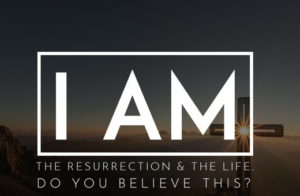 Like the gospels of the last two Sundays (the Samaritan Woman and the Man Born Blind), this reading is directed at those preparing for Baptism at Easter. Baptism, as Paul tells us, is both a dying to one’s past and an entry into new life. The newly baptised person is “a new person” with a new life.
Like the gospels of the last two Sundays (the Samaritan Woman and the Man Born Blind), this reading is directed at those preparing for Baptism at Easter. Baptism, as Paul tells us, is both a dying to one’s past and an entry into new life. The newly baptised person is “a new person” with a new life.
For us already baptised, we can do well to reflect on how much we have continued to see that life growing in us. That is the theme of Paul in the Second Reading. Those whose lives are embedded in the “flesh”, that is, those whose lives are given over to their instincts of greed and self-indulgence, can never be close to God.
Those who are in the Spirit will want to give their whole selves to the higher instincts of truth, love, compassion, sharing and justice. When we are full of that Spirit then we have truly risen with Christ for his life is truly active in us. We are both alive and life-giving. “I live, no, it is not I, but Christ who lives in me.”
22/3/20 4th Sunday of Lent
“Sunday Scripture Reflections” (Fr. Frank Doyle SJ)
 The story keeps emphasising that the man was blind from birth. To heal him then means the beginning of a completely new life, a life where he can see. He will enter a new world of brightness. Not to know Jesus is to live in blindness and darkness. In fact, this story is an illustration of Jesus’ statement: “I am the light of the world”.
The story keeps emphasising that the man was blind from birth. To heal him then means the beginning of a completely new life, a life where he can see. He will enter a new world of brightness. Not to know Jesus is to live in blindness and darkness. In fact, this story is an illustration of Jesus’ statement: “I am the light of the world”.
In the beginning of the story, the man is blind – he cannot see; he is a beggar – he has nothing; he is an outsider – no one accepts him. His affliction indicates that he is a sinner or the son of a sinner and so a person to be avoided. In the end, when he is able to see, he becomes a disciple of Jesus. In terms of the Gospel, it is the logical and inevitable outcome. Once we really see Jesus, we are hooked.
In the beginning he was blind, he was in darkness. In the end he is in the light, because Jesus is the Light of the world.
Jesus heals the man’s eyes. In doing so he uses mud and saliva. People believed that saliva could heal and they were right. We know now that our saliva is a kind of antibiotic. That is why dogs and other animals lick their wounds. (In our own case, one’s saliva may be applied to heal very effectively minor but persistent skin blemishes.)
Here, Jesus by using mud also helps us to remember God used mud to create Adam, the first man. Here, too, there is a new creation. Jesus is making a new man. St Paul calls the baptised Christian a “new person”. Then Jesus tells him to go and wash in the pool of Siloam. This is symbolic of his baptism.
After his healing, the man’s friends and his neighbours discuss his identity. Is it really him? But the beggar was blind and this man can see. Because he has changed, some people cannot recognise him. When we are baptised, when we become committed followers of Christ, we too should change. Maybe some people will say, “You are not like the way you were before! You are not the same person since your conversion and baptism.” In fact, that is what they should be able to say.
Because they are not satisfied, neighbours bring the blind man to see the Pharisees. They are the sources of orthodox thinking and fidelity to the Law.
In fact, Jesus had healed the man on the Sabbath and the methods he used were a violation of the letter of the Law. Their argument went, that if Jesus truly were from God, he would not be breaking the law. On the other hand, if he was a sinner, how could he do these things? Sinners cannot do the work of God. This led to division among the Pharisees themselves because they refused to follow out their own logic.
The Pharisees then interrogate the blind man. He keeps telling them just what Jesus had done for him. For him the answer is quite simple: Jesus is a prophet. Sabbath or no Sabbath, his actions are clearly from God. “How could a man who is a sinner do things like this?”
But the Pharisees cannot accept his argument. If they accept, then they have to accept Jesus and his teaching also. So they do not even want to accept that the man was ever blind!
Now they turn to question the man’s parents. The parents know very well that their son was born blind but they are afraid to say so. They know that now if anyone says Jesus is the Messiah they will be expelled from the synagogue. They will no longer be part of the community. Many Jewish Christians, known to the readers of this gospel, would have had this experience. Later on, thousands of Christians would have a similar experience, ostracised for their faith in Christ.
Unfortunately, the man’s parents were prepared to sacrifice their integrity rather than suffer such a punishment. So the parents push the argument back to the son: he is an adult; he is well able to answer for himself.
The Pharisees again ask the man to tell the truth. “We know that Jesus is a sinner. He cannot do these things.” The healed man stands his ground: “I don’t know if he is a sinner. I do know I was blind and now I can see.” For the umpteenth time they ask, “What did he do?” Exasperated, the man replies: “I told you already. But you will not listen.” He begins to mock them. He is more daring now, not afraid. “You want to be his disciples too?”
This makes them angry and they begin to abuse him. “You are his disciple. We are Moses’ disciples. No one knows where that fellow [Jesus] came from.” In a sense that is perfectly true because the Word was with God from the very beginning. On the other hand, Jesus’ origins are perfectly obvious as the cured man is well aware: “How strange! He cured me. Sinners cannot do such things. God does not listen to sinners. God listens to those who respect him and do his will. Never before was it heard that anyone had cured a man born blind. If Jesus is not from God he could not do this.”
The Pharisees are now very angry. They resort to the traditional belief: sickness as punishment for sin. “You were born and raised in sin. You want to teach us?” And they expelled him from the synagogue. This was indeed the experience of many Jews who became Christians. And the experience of many others later on, expelled by their families, relatives and society.
This gospel has a clear relation to baptism. We read it today for the catechumens who are preparing to be baptised and enter the Christian community. They have begun to see Jesus, to recognise him and to follow him.
 But the Gospel is also for us already baptised. We also need to see Jesus and the Gospel more clearly. The words of Paul in the Second Reading are very appropriate: “You were darkness once, but now you are light in the Lord; be like children of light, for the effects of the light are seen in complete goodness and right living and truth.”
But the Gospel is also for us already baptised. We also need to see Jesus and the Gospel more clearly. The words of Paul in the Second Reading are very appropriate: “You were darkness once, but now you are light in the Lord; be like children of light, for the effects of the light are seen in complete goodness and right living and truth.”
On the one hand, Paul is telling us that, like the man in the Gospel who represents all of us, we were also blind and stumbling in darkness. But now we live in the light of the Gospel and the New Testament. And that light is seen in the way we behave, in the way we relate with other people in “complete goodness and right living and truth”. Our lives are to have a transparency where there is no darkness, no hidden behaviour which we would be ashamed to reveal to others.
Let us all pray for this.
15/3/20 3rd Sunday of Lent
“Sunday Scripture Reflections” (Fr. Frank Doyle SJ)
 THE THEME of today’s Mass centres around water. The links with Baptism are obvious. Water is the source of life but also of destruction.
THE THEME of today’s Mass centres around water. The links with Baptism are obvious. Water is the source of life but also of destruction.
So we have the story of the Flood, which brought salvation to Noah and his family but death to a sinful world; the crossing of the Red Sea, which meant life and liberty to the Israelites but death to the army of the Pharaoh; and the water from the rock for the Israelites in the dryness desert. We will hear more about these at the Easter Vigil during the blessing of the baptismal water.
The Gospel which we have just heard is about the Woman at the Well and it also centres around the theme of water and life.
The woman can be said to represent three oppressed groups with which Jesus and the Gospel are interested:
– women
– prostitutes and sexually immoral people generally
– all kinds of outsiders, people who are unclean, infidels, foreigners…
The story begins by Jesus showing himself as a person in need: tired, hungry and thirsty. We constantly have remind ourselves how genuinely human Jesus was, “like us in all things but sin”.
He asks help from a person he was supposed to avoid (a strange woman on her own) and also to hate (a Samaritan).
She is very surprised at his approach but her surprise allows Jesus to turn the tables and offer her “living water”. She, understanding him literally, asks how he can give it as he has no bucket. But the water that Jesus will give is different. Those who drink it will never be thirsty again and it gives eternal life. Again, literally, the woman wants this water that lasts forever. Then she will never have to trudge to the well again.
What is this water that Jesus speaks about? It is God’s Spirit which comes to us in Baptism.
Baptism is not just a ritual producing magic effects. It is the outward, symbolic sign of a deep reality, the coming of God as a force penetrating every aspect of a person’s life.
And this happens through our exposure to Jesus and to the Gospel vision of life and our becoming totally converted to that vision. This can only happen through the agency of a Christian community into which we are called to enter. As the Second Reading says today, “God’s love has been poured into our hearts through the Holy Spirit”. It is not just a question of a ritual washing or immersing and saying magic words but of a real drinking in of that Spirit. The spirit quenches our thirst, not by removing our desire for God’s presence but by continually satisfying it.
Jesus now invites the woman to come back to the well once more with her husband. Jesus’ mission to these people begins with reaching out to a family. But she says she has no husband. Jesus reveals her true situation: she has had five husbands and the man she is with now is not her husband. She is a “loose” woman who must have been deeply despised by people around. No wonder she came to the well alone!
The water that Jesus promises is closely linked to conversion and forgiveness of sin. Jesus is the Lamb of God who takes away the sin of the world. But the sin must first be exposed and acknowledged. And Jesus’ goal is not just the woman’s sin but the whole town from which she comes. Sinner that she is, she will become the agent of their salvation and conversion.
She is staggered at Jesus’ insight into her life. She is embarrassed and so there is a sudden change of topic to something theoretical and “safe”. (How often do we experience that? People will interrupt a religious talk with a seemingly important but totally irrelevant question. For instance, one is talking about Christ’s command to carry our cross and a question is asked about indulgences.)
The question the woman asks is about Jewish and Samaritan places of worship: Jerusalem, holy to the Jews, or Mount Gerizim, holy to the Samaritans, or the well of Jacob where they are. But gives Jesus the opportunity to make another important point. The “holy” well where they are will become irrelevant. So will the Temple of Jerusalem or the mountain of the Samaritans. True worship will be done “in Spirit and in truth”. There will be no more temples. It is not places which are holy but the people who use them. It is we who are the Temple of God and the dwelling place of Christ.
The woman goes on to say that when the Messiah comes he will tell all about this. At that point Jesus tells her that he is the Messiah. How extraordinary! It is a religious outsider and a multiple adulterer who is the first in John’s Gospel to hear this revelation! Precisely because it is people like her who need to hear it. People who are healthy do not need the doctor, only the sick.
Just then the disciples now return. Men of their time and culture, they are amazed to see Jesus talking alone to this woman and despised outsider. They don’t know what to say. They offer Jesus food but they are told he has food they know nothing about. “Not on bread alone does man live but on every word that comes from the mouth of God.” Jesus’ food is his total identification with the will of his Father and doing his work. “Happy are those who hear the word of God and keep it.”
Linked with the idea of bread and feeding, Jesus tells them that the harvest is great and it is ripe.
And it now includes Samaritans (including this woman) and all outsiders, aliens, unbelievers, sinners… It is a harvest that has been prepared by others.
 Many Samaritans came to believe in Jesus because of the woman’s witnessing. Then they asked him to stay with them, otherwise he would have continued on his journey. Jesus often needs to be invited to stay. Remember the two men walking to Emmaus? He would not have stopped if they had not invited him to stay the night. He stands at the door and knocks but he will not come in unless invited.
Many Samaritans came to believe in Jesus because of the woman’s witnessing. Then they asked him to stay with them, otherwise he would have continued on his journey. Jesus often needs to be invited to stay. Remember the two men walking to Emmaus? He would not have stopped if they had not invited him to stay the night. He stands at the door and knocks but he will not come in unless invited.
As a result, in this story many in that Samaritan village came to believe in Jesus. And they said: “It is no longer because of what you [the woman] said that we believe, for we have heard for ourselves, and we know that this is truly the Saviour of the World.” For our catechumens, and for all of us, the faith that has been handed on must become our own faith. So that, even if everyone around us were to abandon Jesus, I would not. Ultimately faith is totally personal. “I live, no not I, but Christ lives in me.”
8/3/20 2nd Sunday of Lent
Listen to my beloved Son
 The Lord Jesus is the fulfillment of all the promises made to Abraham and to his spiritual descendants. In all that Jesus did and said he sought to please his Father in heaven and to bring him glory. Like Abraham, he was ready to part with anything that might stand in the way of doing the will of God. He knew that the success of his mission would depend on his willingness to embrace his Father’s will no matter what it might cost him personally.
The Lord Jesus is the fulfillment of all the promises made to Abraham and to his spiritual descendants. In all that Jesus did and said he sought to please his Father in heaven and to bring him glory. Like Abraham, he was ready to part with anything that might stand in the way of doing the will of God. He knew that the success of his mission would depend on his willingness to embrace his Father’s will no matter what it might cost him personally.
Jesus on three occasions told his disciples that he would undergo suffering and death on a cross to fulfill the mission the Father gave him. As the time draws near for Jesus’ ultimate sacrifice on the cross, he takes three of his beloved disciples to the top of a high mountain. Just as Moses and Elijah were led to the mountain of God to discern their ultimate call and mission, so Jesus now appears with Moses and Elijah on the highest mountain overlooking the summit of the promised land. Matthew’s Gospel tells us that Jesus was transfigured before them, and his face shone like the sun, and his garments became white as light.
Why did Jesus appear in dazzling light with Moses and Elijah? The book of Exodus tells us that when Moses had met with God on Mount Sinai the skin of his face shone because he had been talking with God. Paul the Apostle wrote that the Israelites could not look at Moses’ face because of its brightness (2 Corinthians 3:7). After Elijah, the greatest of the prophets, had destroyed all the priests and idols of Baal in the land, he took refuge on the mountain of God at Sinai. There God showed Elijah his glory in great thunder, whirlwind, and fire, and then spoke with him in a still quiet voice. God questioned Elijah, “What are you doing here?” And then directed him to go and fulfill the mission given him by God. Jesus, likewise, appears in glory with Moses and Elijah, as if to confirm with them that he, too, is ready to fulfill the mission which the Father has sent him to accomplish.
 Jesus went to the mountain knowing full well what awaited him in Jerusalem – betrayal, rejection, and crucifixion. Jesus very likely discussed this momentous decision to go to the cross with Moses and Elijah. God the Father also spoke with Jesus and gave his approval: This is my beloved Son; listen to him. The Father glorified his son because he was faithful and willing to obey him in everything. The cloud which overshadowed Jesus and his apostles fulfilled the dream of the Jews that when the Messiah came the cloud of God’s presence would fill the temple again.
Jesus went to the mountain knowing full well what awaited him in Jerusalem – betrayal, rejection, and crucifixion. Jesus very likely discussed this momentous decision to go to the cross with Moses and Elijah. God the Father also spoke with Jesus and gave his approval: This is my beloved Son; listen to him. The Father glorified his son because he was faithful and willing to obey him in everything. The cloud which overshadowed Jesus and his apostles fulfilled the dream of the Jews that when the Messiah came the cloud of God’s presence would fill the temple again.
The Lord Jesus not only wants us to see his glory – he wants to share this glory with us. And Jesus shows us the way to the Father’s glory – follow me – obey my words. Take the path I have chosen for you and you will receive the blessing of my Father’s kingdom – your name, too, will be written in heaven. Jesus fulfilled his mission on Calvary where he died for our sins so that Paradise and everlasting life would be restored to us. He embraced the cross to win a crown of glory – a crown that awaits each one of us, if we, too, will follow in his footsteps.
1/3/10 1st Sunday of Lent
“Sunday Scripture Reflections” (Fr. Frank Doyle SJ)
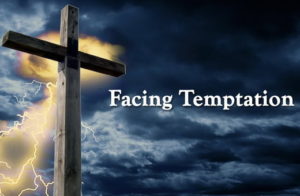 Today’s Gospel story follows immediately on Jesus’ baptism and endorsement by his Father as his “Beloved Son” to whom we are to listen.
Today’s Gospel story follows immediately on Jesus’ baptism and endorsement by his Father as his “Beloved Son” to whom we are to listen.
Note that Jesus is led into the desert by the Spirit of God. The purpose clearly is not to lead him to do evil but as a testing of his fitness for his coming mission. Will he fail like our First Parents or like the Israelites of old? Or will be prove himself worthy of the mission he has been given?
The testing will be done not by God directly but by the Evil One, the Tempter. It is pictured as taking place in a barren region between Jerusalem and the Dead Sea.
Jesus, like Moses before him, had fasted for 40 days. He is alone in the wilderness without food.
He is hungry, weak and vulnerable. Now is the time for the Tempter to move in.
Each of the three temptations touches on Jesus’ identity as the Son of God, which had been revealed during his baptism. “This is my Beloved Son in whom I am well pleased.”
The Tempter then begins, “If you are the Son of God, why not use your divine powers to turn these large, flat stones at your feet into bread?” God fed the Israelites with manna in the desert. Surely he will feed his own Son? Why have powers and not use them? Why not take this opportunity to prove that you really are the Son of God?
It is important to realise that all temptations – and these tests are no exception – come to us under the guise of some kind of goodness. No sane person chooses the purely evil unless some positive benefit is seen to come from it. In each of the three tests today, Jesus is being led on to do something which would seem to enhance his mission as Lord and Saviour.
In responding to the Tempter, Jesus will not just use his own words but each time quote a saying from the Hebrew Testament. In this first test Jesus rejects the offer by saying, that “it is not on bread alone that we live”. True happiness does not consist in satisfying material wants, in having many things, but in identifying ourselves fully with the vision of life which God gives us through Jesus.
Further, for Jesus to have changed the stones into bread would have been to show a lack of trust in the providential care of his Father who will see that he has all he needs for his life and mission.
Satan’s next approach is to bring Jesus to the highest point of the Temple in Jerusalem. This is God’s very dwelling place. Surely here he will take care of his Son. “If you are the Son of God, throw yourself down.” Jesus has just shown his trust in God by not changing the stones into bread. Now here is a chance really to prove that trust.
Two things will happen:
- a. God will not allow Jesus to be hurt. Now it is the Tempter himself who cleverly quotes Scripture: “He will command his angels concerning you, and they will lift you up in their hands, so that you will not strike your foot against a stone.” God promises his providential care in the normal course of our lives but he never promises supernatural intervention, when we do something unreasonable. “God takes care of those who take care of themselves.” St Ignatius of Loyola is said to have advised: “Do things as if everything depended on God and nothing on oneself and, at the same time, as if everything depended on oneself and nothing on God.”
- b. If Jesus jumps and is miraculously saved, everyone will know his divine origin and will believe in him! Jesus quotes the Scripture back again, “Do not put the Lord your God to the test.” As Scripture scholar William Barclay says, real faith is total trust; it is not “doubt looking for proof”.
After the failure of the first two attempts, Satan now drops all pretence. He brings Jesus to a high mountain and shows him all the kingdoms of the world. All this can be Jesus’, if he falls down and worships the Tempter. Is not this what Jesus wants: to bring all the kingdoms of the world into his own Kingdom? Is that not the purpose of his whole life?
It is, of course, an impossible bargain. It would make no sense for the whole world to submit itself to Jesus as Lord and then for Jesus himself to submit to the Evil One. Yet, it is a bargain we constantly try to make: to belong to God and to go to any lengths to get the things we want: material wealth, success, a recognised standing in the eyes of others…
Jesus will put it differently later on: What does it profit someone to gain the whole world and lose their real life? What can one give in exchange for the deep relationship with God for which we were born?
Jesus absolutely rejects the offer: “Away from me, Satan!” It reminds one of the words said to Peter who tried to deflect Jesus from the way he had to go and was told: “Get behind me, Satan!”
In fact, these three tests are really symbols of real tests that we find in the life of Jesus.
Jesus did produce large quantities of bread on two occasions but not for himself but rather to feed the hungry.
He rejected calls from his opponents to prove who he was by performing some striking signs. He said the only sign would be his own death and resurrection.
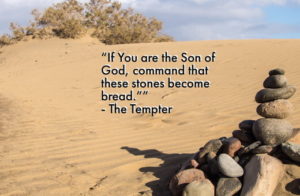 After one of the feedings (as told in John’s gospel), he had the crowd at his feet and they wanted to make him king. Instead, he fled to the mountains to pray to his Father and packed his ambitious disciples off in a boat and into a storm which gave them something else to think about – survival.
After one of the feedings (as told in John’s gospel), he had the crowd at his feet and they wanted to make him king. Instead, he fled to the mountains to pray to his Father and packed his ambitious disciples off in a boat and into a storm which gave them something else to think about – survival.
Jesus passes all three tests and will continue to do so all during his life right up to the moment of his death. In the garden of Gethsemane, he will beg to be spared the horrors of his Passion but will then put aside his own fears of suffering and death and accept his Father’s way. On the cross he will make the despairing cry, “My God, my God, why have you forsaken me?” and soon after, in total submission, say: “Into your hands I surrender my life.”
The way of the Father is the only way that will lead him – and us – to the life that never ends and when all tears will be wiped away.
23/2/20 7th Sunday in Ordinary Time
“Sunday Scripture Reflections” (Fr. Frank Doyle SJ)
 In the Gospel, as Jesus continues to teach his disciples in the Sermon on the Mount, he again reminds his hearers that more is expected of his disciples than was laid down in the Old Testament. “You have heard that it was said, ‘An eye for an eye and a tooth for a tooth’.” That sounds like a command to take vengeance. On the contrary, it was a counsel of self-restraint — only hurt your opponent to the same degree that he/she hurts you and no more. Also, retaliation could only be authorised by a court. In our own time, it is not unusual to see people take vengeance far beyond the hurt that was done to them.
In the Gospel, as Jesus continues to teach his disciples in the Sermon on the Mount, he again reminds his hearers that more is expected of his disciples than was laid down in the Old Testament. “You have heard that it was said, ‘An eye for an eye and a tooth for a tooth’.” That sounds like a command to take vengeance. On the contrary, it was a counsel of self-restraint — only hurt your opponent to the same degree that he/she hurts you and no more. Also, retaliation could only be authorised by a court. In our own time, it is not unusual to see people take vengeance far beyond the hurt that was done to them.
But Jesus proposes a quite different approach. “Do not resist an evildoer. If anyone strikes you on the right cheek, turn the other also. If anyone wants to sue you and take your coat, give your cloak as well; if anyone forces you to go one mile, go also the second mile…” What an impractical recipe! How could any self-respecting person follow such wimpish advice? Aren’t we taught that to be a man you don’t take things lying down, you give as good as you get, and even more…?
Yet, is it really wimpish? Who is the really strong person: the one who lashes out in anger or the one who remains fully in control of himself? The one who refuses to be brought down to the same level as his attacker?
Let us make it very clear. In the way in which Jesus understands it, turning the other cheek is not weakness; it requires tremendous inner strength and security. We do not see much of that kind of strength from the macho characters on our TV screens. There the slightest offence is to be replied to in a hail of bullets and bombs. But, as we know from the various flashpoints around the world, it is bound to fail. It has failed in Northern Ireland; it is failing in Israel; it has failed between India and Pakistan. And there are countless other examples.
But Jesus is not finished yet. “You have heard that it was said, ‘You shall love your neighbour and hate your enemy’. But I say to you, love your enemies and pray for those who persecute you, so that you may be children of your Father in heaven; for he makes his sun rise on the evil and on the good, and sends rain on the righteous and on the unrighteous. For if you love those who love you, what reward do you have? Do not even tax collectors do the same? And if you greet only your brothers and sisters, what more are you doing than others? Do not even the pagans do the same?”
Is Jesus out of his mind? Does he really expect genuine, red-blooded human beings to react this way to hostility and violence? How can we possibly love people who do us harm, whom we know to be evil, wicked and corrupt? Are we really to love the likes of Hitler, Stalin, Pol Pot, to love the terrorist, the sexual abuser…?
The problem here is the word ‘love’. Generally speaking, to say we love a person is to have warm feelings of affection towards them or even to be in love with them. Is Jesus asking me to have the same feelings for my life companion as for some terrible human monster? The answer is unequivocally, NO!
‘To love’ in the Gospel context here means to ‘wish the wellbeing of’. It is a unilateral, unconditional desire for the deepest wellbeing of another person. It does not ask me ‘to be in love with’, to have warm feelings for someone who is doing me and others serious harm. That would be ridiculous. But we can sincerely wish the wellbeing of those who harm or persecute us. We pray that they may change, not just for our sake but also for their own. We pray that from hating, hurting people they become loving and caring people.
Far from being unreasonable to pray for such people, there are no people who need our prayers more. On the other hand, to hate them in return is simply to make ourselves just the way they are, to reduce ourselves to their level. And we see what happens in our world when hate and violence are returned by hate and violence.
Nothing eats away at our innards more than resentment, anger, hatred and violence. Sometimes we think we can punish people by hating them but it is we ourselves, not they, who are the real victims.And, of course, it is in our attitude to hostile and misbehaving people that the genuineness of our concern for people is really tested. As Jesus says, it is easy to care for the people who are close to us, who are good to us. To paraphrase the Gospel, even terrorists love terrorists. The Mafia is known for its loyalty to its members – but not to anyone else.
The passage concludes with Jesus saying, “Be perfect, then, as your heavenly Father is perfect.” This obviously is an ideal, a goal to be aimed at. And the perfection intended is not total perfection but rather to aim at that total impartiality of a God who extends his providential care and love equally to all. In the dry, searing heat of the Middle East, all, good and bad, have to endure the burning sun and enjoy the gentle, cooling rain. God stretches out his caring love to all, good and bad, and he does not love the bad less than the good. So, if we want to identify with Him, we have no right whatever to withdraw our love, that is, our desire for wholeness, from a single person. Whether a person returns our love or God’s love is their problem and their loss.
Let us not, then, just see this teaching of Jesus as pie in the sky, something that is hopelessly ideal. If we reflect on it, we will begin to see that this is the only reasonable way for us to deal with people both for our own personal growth and fulfilment and as contributing also to that of others. Jesus is not asking us to do something impossible and unreasonable but to open our eyes and see what is the only really sensible way to live and relate with the people around us.
And why should we treat other people with such reverence and concern? Because, as St Paul says today, “you are God’s temple and God’s Spirit dwells in you. If anyone destroys God’s temple, God will destroy that person. For God’s temple is holy and you are that temple” — and so is that person next to me right now. Here Paul is speaking specifically of Christians who form the Body of Christ but, in other ways, every single person is made in the image of the Creator and God is present in some way there.
 All in all we are being called on to recognise and respond to God’s presence in every single person and creature that we meet. Irrespective of how they behave. And that is true even when the person acts in ways totally contrary to God’s way. In fact, it is precisely then that the God in me has to reach out and affirm the God in the other. Mutual violence only weakens God’s presence in both of us. Paradoxically, the worse a person behaves, the more that one is crying out to be loved and cared for.
All in all we are being called on to recognise and respond to God’s presence in every single person and creature that we meet. Irrespective of how they behave. And that is true even when the person acts in ways totally contrary to God’s way. In fact, it is precisely then that the God in me has to reach out and affirm the God in the other. Mutual violence only weakens God’s presence in both of us. Paradoxically, the worse a person behaves, the more that one is crying out to be loved and cared for.
At the beginning, we said that the theme of today’s readings was ‘holiness’. Perhaps we now have some idea just where real holiness is to be found.
16/2/20 6th Sunday in Ordinary Time
“Sunday Scripture Reflections” (Fr. Frank Doyle SJ)
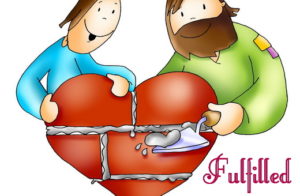 In today’s Gospel Matthew emphasises the relation between Jewish Law and the teaching of Jesus. Matthew reassures his readers that Jesus has not come to abolish the Law and the prophets but to bring them to completion. So, in a sense, the Law still has force. “Until heaven and earth pass away, not one letter, not one stroke of a letter, will pass from the law until all is accomplished.”
In today’s Gospel Matthew emphasises the relation between Jewish Law and the teaching of Jesus. Matthew reassures his readers that Jesus has not come to abolish the Law and the prophets but to bring them to completion. So, in a sense, the Law still has force. “Until heaven and earth pass away, not one letter, not one stroke of a letter, will pass from the law until all is accomplished.”
On the other hand, there is much in Jesus’ teaching that is completely new. He did not abolish the Law but he introduced a completely new way of thinking. He did not abolish or change the Law but went far beyond its literal requirements. For Jesus, just to keep the Law externally is not enough. To be a disciple of Christ, the foundation of our lives must go deeper – to a mutual love. To keep the Law without love is like having a body without a soul. Literally to keep the Law of God and of the Church is not the same as being a good disciple of Jesus. “If your virtue goes no deeper than the Scribes and the Pharisees [who were perfect observers of the letter of the Law], then you will never enter the Kingdom of God,” Jesus says today.
The Scribes and the Pharisees kept the Law and the Commandments very carefully. But Jesus would say that, though they observed the external requirements of the Law, they did not have the spirit which is the foundation of the Law: to love God and to love the neighbour as oneself. Clearly, this teaching would have made much more impact on a Jewish audience but, even in our Christian lives, it is possible for people to have a very mechanical notion of what is good behaviour. This is revealed often in the way we “go to confession”.
To help us understand his meaning Jesus gives six striking examples and, in today’s Gospel, we have four of them. In these four examples Jesus helps us to understand that, to be one of his disciples, it is not enough simply to keep what the Law tells us to do. We do not keep the Law through our behaviour but through our basic attitudes, our basic values.
When the Pharisees kept the Law they wanted to obey God but very often they neglected the needs of others. It was their own “perfection” they were mainly concerned about (just as we can be exclusively concerned about being in a “state of grace”). Even now, some people in confession are sorry because their sins offend God or are instances of personal failure but often they show little awareness of how their sins hurt other people.
For Jesus, we cannot separate our relationship with God and our relationship with people. If we cannot find God in our brothers and sisters, we cannot say that we really love God. “As often as you did not do it to them, you did not do it to me.” Or in the words of the First Letter of John: “If you refuse to love, you must remain dead; to hate your brother is to be a murderer”.
The first example from the Law that Jesus gives is, “Do not kill.” But Jesus says we must not even get angry or use insulting words with others. What Jesus is saying is that we must deeply respect the dignity and rights of every person, a person who is unconditionally loved by God and for whom Jesus will sacrifice his life. And if we do not respect our brothers and sisters deep within our heart, we cannot say we respect God. So if I am going to the Temple to pray (a religious act of worship) and I remember I have offended someone, I should go and reconcile with my brother first and only then make my offering in the Temple. Otherwise, my prayers and offering are of no real value.
Life and worship cannot be separated: each influences the other. Yet, how often do we piously go to Mass when we have deeply hurt another person and need to reconcile with him or her? We cannot say we love Jesus if we are hurting others.
That is the meaning of the sign of peace which we share with others before sharing in the communion. And, where possible, it would be great to make a point of giving the sign of peace sincerely to a person with whom we have a problem, a person we may criticise or dislike, or someone who is a foreigner or a complete stranger. If we cannot do this, we may question the genuineness and integrity of our communion.
“You must not commit adultery.” Adultery occurs when there are sexual relations between two people, of whom at least one is already married. In Jewish Law there were very serious penalties for this. We remember the woman who was brought to Jesus to be stoned to death, because that was what the Law demanded. Jesus, however, says you can commit adultery in your thoughts (and nobody knows about it – except you).
Again Jesus is saying that, apart from our external actions, our basic attitude is paramount. We cannot just use another person just as an object to give us pleasure. We cannot use another person like a toy. When that happens both are degraded. Real love is completely different. Real respect is completely different. And adultery is wrong not so much because it is a sexual act outside marriage but because it is an act of serious injustice to the innocent married partner and seriously injures the marriage relationship. It is a serious breach of trust and fidelity.
The Law also says, “Whoever divorces his wife, let him give her a certificate of divorce.” In Jesus’ time, it was relatively easy to divorce. If a husband became sexually attracted to another woman, he could just make an official declaration that he was divorcing his wife. It could be for very trivial reasons. She could do nothing. She had no say in the matter.
It was legal but, according to Jesus, it was against the dignity and the rights of the wife. It was legal but it was both selfish and unjust. It was legal but also immoral. For Jesus, it is not enough for something to be legal. It must also be good. It must also be an expression of love and justice. That is something we need to remember. Immoral acts are not less moral because they do not happen to be against the law or because I am no longer a practising Catholic.
It would seem that Jesus is dealing here with divorce for selfish reasons. In our time, divorce is often the result of a marriage having irretrievably broken down. In Jesus’ time, love or happiness had very little to do with marriage. It was governed by the laws and by tradition and was seen primarily as the bringing together of two families with the purpose of producing heirs. The matter is more complex in our own time and we have also to distinguish between obtaining a civil divorce (which Catholics can do) and having a second sacramental marriage (which, under the present legislation, Catholics may not do). And there are other issues involved in the question of divorce but they can be dealt with more fully when we deal with the question later.
“Don’t swear falsely! Carry out what you vow.” It was common in Jesus’ time for people to guarantee the truth of what they said by making a solemn oath before God. Jesus’ point is that a good Christian does not have to swear at all, because a true Christian is a reliable and totally honest person. He or she is a person of integrity. Such people can be trusted when they speak. They don’t have to give external guarantees. Their ‘Yes’ or ‘No’ means exactly what is said and there are no mental reservations. It is a pleasure to meet people like that, who are totally transparent and have nothing to hide.
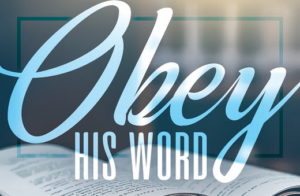 There are not a few Catholics who feel that if they just keep the Commandments they are good Catholics. They often like to ask, “Is this a sin?”, that is, is it against the law? Is it a mortal sin or is it a venial sin? If it is “only” a venial sin, then I can do it.
There are not a few Catholics who feel that if they just keep the Commandments they are good Catholics. They often like to ask, “Is this a sin?”, that is, is it against the law? Is it a mortal sin or is it a venial sin? If it is “only” a venial sin, then I can do it.
But true Christians do not ask whether something is legal or illegal. They love God, they love Jesus, they love their brothers and sisters. Their only concern is how they can serve and love them more and more. They want to work with Jesus and with his brothers and sisters to build the Kingdom of God. No matter how much they do, they know they can still love more and do more and be more.
It is not then a question of law; it is not a question of what I have to do. It is a question of how much more I can do, how much more I want to do. The requirements of the law are way behind.
9/2/20 5th Sunday in Ordinary Time
“Sunday Scripture Reflections” (Fr. Frank Doyle SJ)
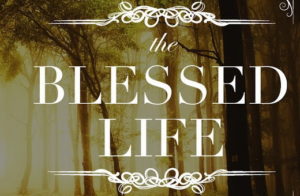 What Jesus emphasises is its distinctive taste. We often judge food by saying it has too little or too much salt. Christians then, by their Gospel-centred lives, are to give a distinctive taste to society. Those who really have the spirit of the Beatitudes (including non-Christians) will permeate the world, renew it and retard its social and moral decay.
What Jesus emphasises is its distinctive taste. We often judge food by saying it has too little or too much salt. Christians then, by their Gospel-centred lives, are to give a distinctive taste to society. Those who really have the spirit of the Beatitudes (including non-Christians) will permeate the world, renew it and retard its social and moral decay.
But salt only produces its effect when it is totally merged with the food. It is indistinguishable from the rest of the food but its presence or absence is very obvious. The Christian, too, can only be truly effective when he or she is fully a member of society and, at the same time, gives an unmistakable taste to that society.
There have been times when Christians felt that they should keep away from the “world”. Monks and nuns, who were among the most committed Christians, built large walls around their property to keep the “world” out.
In our Western society, we often put salt on the side of the plate. This is like the Christian who does have taste but who lives on the fringes of society and makes no impact on it. This can happen very easily when, for instance, we have a parish which is only concerned with its own spiritual well-being and makes no effort to reach out. There are many parts of our society, especially the commercial, industrial and entertainment areas where the Church is often totally absent. The other extreme is when a Christian is totally immersed in secular society but has nothing to give. This is like the tasteless salt which is good for nothing.
“You are the light of the world…” Jesus said of himself, “I am the light of the world.” We are then called to be and to do what Jesus did for the world. The Gospel message is to shine out through our words and actions. Some people will not like that light, preferring darkness, and may try to put it out. Jesus has already dealt with that in the last Beatitude where he speaks of persecution for the sake of the Gospel.
Jesus uses two more images to emphasise the essential visibility of the Christian. He speaks of a city built on top of a hill. It sticks out like a sore thumb. There is no way to hide it. And he speaks of a lamp on a lampstand. What is the point in lighting a lamp then covering it up? What is the point in getting baptised, joining the Christian community and then become completely invisible to others, especially to those who are not Christians? For instance, how many of my neighbours know that I am a believing and practising Christian? How many of my colleagues at work know? How many of my socialising friends?
Let the light that is in us, then, shine brightly. And why? So that people will see our good works and say how wonderful Catholics we are? No! There is only one reason for us to be salt and light for others and that is that people may be drawn to God as their Lord. Our only aim in living out the Gospel with maximum visibility is to point people in the direction of the God who loves them and in whom is their ultimate happiness. Our aim is to urge people to work together for the kind of world that God wants us to have.
To do all this we do not need elaborate training, or a postgraduate degree. It is within reach of the most simple, even illiterate, person. It is not a question of passing on knowledge but of sharing our experience of a loving God.
Paul tells us elsewhere that he begged God to remove from him a serious disability which he felt prevented him from preaching the Gospel effectively. Three times he begged God to take this thing away. And, he says, God answered his prayer, not by taking it away but by helping Paul to realise that it was precisely in his weakness and through his weakness that God’s power became most obvious in him.
 So our lack of talent or influence or education can never be excuses for not sharing our experience of Christ and of working with others to establish the Kingdom among us.
So our lack of talent or influence or education can never be excuses for not sharing our experience of Christ and of working with others to establish the Kingdom among us.
We saw that in a person like Mother Teresa who exerted such a powerful influence by the utter simplicity of her life. Wearing her simple white sari and her old leather sandals, she could visit the destitute and dying in the slum of an inner city and the next day be socialising with the rich and powerful wearing exactly the same clothes. That is what being the salt of the earth means.
2/2/20 The Presentation of the Lord
“Sunday Scripture Reflections” (Fr. Frank Doyle SJ)
 Today we celebrate the close of the Christmas with a festival of light. Candles are blessed and they are carried in procession to welcome Christ, the Light to enlighten the Gentiles and the glory of his people. Until the year 1969, the feast, which is of Eastern origin, was known in the West as the feast of the Purification of Our Lady and also as Candlemas. Now we prefer to refer to it as the Presentation of the Lord.
Today we celebrate the close of the Christmas with a festival of light. Candles are blessed and they are carried in procession to welcome Christ, the Light to enlighten the Gentiles and the glory of his people. Until the year 1969, the feast, which is of Eastern origin, was known in the West as the feast of the Purification of Our Lady and also as Candlemas. Now we prefer to refer to it as the Presentation of the Lord.
Forty days after the birth of Jesus, today’s celebration brings the Christmas season to a close.
It was Jewish belief that, because of the bleeding, a mother was ritually unclean after giving birth and hence was in need of ritual purification. On giving birth to a son, a Jewish woman would be in semi-seclusion for 40 days (in the case of a girl, the period was longer). At the end of that period, the mother would then, in the case of her first-born, present him to the Lord in acknowledgement of his being source of all life. (First-born animals were also presented and sacrificed to God.)
So in today’s feast we see Mary and Joseph – 40 days after the birth of Jesus – submitting to the Law of Moses in bringing their Son to be offered, as the first-born, to God and for the purification of the mother after giving birth, even though we believe that Mary did not need such purification. For the ceremony, they have come up from Nazareth to the Temple in Jerusalem.
 Today’s feast brings to an end a whole period which resonates with a sense of light. Christmas itself, taking place just after the winter solstice, is the celebration of the end of the darkness of winter and the coming of light into the world, especially the Light of the World. Twelve days later there is the feast of the Epiphany when the light of a star guides the Gentile outsiders to pay homage to the Light of the World. Then today, we bring the celebration to a close with this feast of light. It has long been a day for processions as we remember the Lord’s entry into the Temple, the house of his Father, for the first time. These processions originally replaced pagan celebrations. Later, it was identified with the blessing of candles carried in procession in honour of Christ, “the light to enlighten the Gentiles”.
Today’s feast brings to an end a whole period which resonates with a sense of light. Christmas itself, taking place just after the winter solstice, is the celebration of the end of the darkness of winter and the coming of light into the world, especially the Light of the World. Twelve days later there is the feast of the Epiphany when the light of a star guides the Gentile outsiders to pay homage to the Light of the World. Then today, we bring the celebration to a close with this feast of light. It has long been a day for processions as we remember the Lord’s entry into the Temple, the house of his Father, for the first time. These processions originally replaced pagan celebrations. Later, it was identified with the blessing of candles carried in procession in honour of Christ, “the light to enlighten the Gentiles”.
26/1/20 3rd Sunday in Ordinary Time
“Sunday Scripture Reflections” (Fr. Frank Doyle SJ)
 The call is not just to be sorry for past sins and not to do them any more. There has to be a complete change of direction, a deep involvement in doing God’s work. That work involves working with others for an end to poverty and destitution, to hunger and joblessness, to communal and religious hatred, to rampant greed, ambition and shameless consumerism and to create a world of love and care – the special attributes of God.
The call is not just to be sorry for past sins and not to do them any more. There has to be a complete change of direction, a deep involvement in doing God’s work. That work involves working with others for an end to poverty and destitution, to hunger and joblessness, to communal and religious hatred, to rampant greed, ambition and shameless consumerism and to create a world of love and care – the special attributes of God.
The kingdom has not yet arrived. There is still much to be done – right here where we live.
And it is a message not just for Catholics or Christians but for people everywhere. The Kingdom goes far beyond the boundaries of the Church and the Kingdom is being realised in many ways in places where Christianity has yet to penetrate. About 80 percent of the world’s population does not know the Gospel of Jesus but that does not mean that the values of the Kingdom are absent. We must learn not to see Christianity or Catholicism in sectarian terms – ‘them’ and ‘us’. The message of Jesus is a vision of life for all humanity and should be communicated as such.
After his preaching, Jesus finds the first partners for his work. They are not Pharisees or Scribes, not scholars or influential members of the community but fishermen, who may have been quite illiterate.
It is significant that the call takes place right in their working place. The initiative for the call comes from Jesus. “I chose you, you did not choose me.”
For them it means a metanoia, a complete break in their lifestyle. There is a complete letting go.
“Immediately they left their nets and followed Jesus.” They put their total trust in Jesus, leaving behind their only means of livelihood, not knowing where it would all lead. Jesus himself had already taken this step in leaving Nazareth, his family and his livelihood as a carpenter.
From now on their life would consist not in worrying what they could get and keep but in service to their brothers and sisters, especially those in greatest need.
At the same time there is no evidence that they lived in destitution or want. Leaving the tools of the only way of life they had known was to choose to lead a simple lifestyle, only having those things necessary for their sustenance and their work, the new work Jesus was calling them to do.
Their security now came from the new lifestyle they were inaugurating, life in a mutually supporting community, where the needs of each one were taken care of. This, in effect, brought a life of greater material, emotional and social security than is found in our individualistic, competitive, rat-race style of survival.
They separated from their families not because they did not love them but because, as disciples of Jesus, they realised they belonged to a much larger family. They were learning not only to love their own but to love especially all who were in need of love, care and compassion.
In the beginning, their first concern may be family members (early on, Jesus heals Peter’s mother-in-law) but later on they will give priority to those in greater need, non-family members, foreigners, total strangers, even enemies. To follow Jesus is to belong to a much bigger family.
In the Second Reading, too, Paul warns against divisions in the Christian family. It seems that the Christians in Corinth were dividing into factions and identifying themselves with various community leaders: “I am for Paul”, “I am for Cephas (Peter)”; even “I am for Christ”. It is clear that such divisions are harmful. All can only be for one person, the One who suffered, died and rose for them, the One in whose name all of them were baptised – Jesus their Lord.
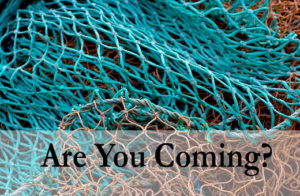 We have, unfortunately, many such divisions among Christians today – “I am a Catholic”, “I am an Anglican… a Lutheran… a Methodist… a Presbyterian…” The list is, alas, endless. This is not the kind of family that Jesus intended. Such a dysfunctional family is not in a good position to give effective witness to the Good News of truth and love and fellowship which Jesus prayed for at the Last Supper (John 17).
We have, unfortunately, many such divisions among Christians today – “I am a Catholic”, “I am an Anglican… a Lutheran… a Methodist… a Presbyterian…” The list is, alas, endless. This is not the kind of family that Jesus intended. Such a dysfunctional family is not in a good position to give effective witness to the Good News of truth and love and fellowship which Jesus prayed for at the Last Supper (John 17).
Today’s call is asking us not just to fit Jesus into our chosen way of living but to fit ourselves into his vision of life. In doing so, we are not making a sacrifice; we are on to a sure winner where we can only gain.
19/1/20 2nd Sunday in Ordinary Time
“Sunday Scripture Reflections” (Fr. Frank Doyle SJ)
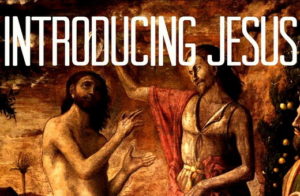 Who is Jesus? We see him today simultaneously in the role of Lord and Servant. Today’s Gospel speaks about Jesus being baptised by John the Baptist. As Jesus approaches, John announces to some of his own disciples: “There is the Lamb of God who takes away the sin of the world!”
Who is Jesus? We see him today simultaneously in the role of Lord and Servant. Today’s Gospel speaks about Jesus being baptised by John the Baptist. As Jesus approaches, John announces to some of his own disciples: “There is the Lamb of God who takes away the sin of the world!”
Why is Jesus called by this strange title, the Lamb of God? It refers back to the origins of the great Jewish feast of the Passover. According to the tradition, God had been urging the Pharaoh to let God’s people leave Egypt. There had been a series of plagues but each time Pharaoh reneged on his promise to do so. The final and most terrible plague involved the slaying of every firstborn child in Egypt.
In order that the Israelites might not be punished, they were told to smear the doorposts of their houses with the blood of a lamb. When God’s angel struck, he passed over the blood-painted houses of the Israelites and their children were spared. They had, in effect, been saved by the blood of the lamb.
Pharaoh acknowledged defeat and finally said he would let the Israelites go. On the night before the Israelites left, under the leadership of Moses, they had a final meal which included the eating of a roast lamb. The lamb then becomes the sign and symbol of the liberation of God’s people from slavery and oppression.
This great event of the Exodus, the Going Out, was and is commemorated in the Passover meal which Jesus celebrated with his disciples at the Last Supper and which is still celebrated by Jews worldwide.
But for us – and this is John the Baptist’s meaning – Jesus is the new Lamb which brings freedom and liberation from the oppression of evil and sin. He sacrifices himself to take away our sins.
Through his death he liberates us. It is no coincidence that Jesus’ sacrificial death took place at the Passover. He is the new Pasch; he is the Lamb who both sacrifices himself and is sacrificed to liberate us. And it is his Blood poured out that is the sign of our salvation.
Jesus can do this because he is at the same time our Lord and our Servant. Because he is our Lord, he can take away our sins; because he is a servant, he sacrifices his life for us. And he is not only our servant, he is our friend. As he told his disciples at the Last Supper, the greatest love a person can show is to sacrifice one’s life for one’s friends and he insists that his disciples are his friends not servants. Even more, Jesus is our Brother.
John the Baptist also speaks of Jesus in the same way. He says: “After me comes a man who ranks ahead of me because he existed before me.” Now we know that John and Jesus are related. And we know, from Luke’s gospel, that John is older than Jesus by about six months, yet he says that Jesus ranks above him and existed before him.
John appears first proclaiming the Kingdom of God. But Jesus precedes John in dignity and status. Because, before John was even conceived in his mother’s womb, Jesus, the Word of God, already existed.
So John says, “I did not know him”. How come he does not know his own cousin, although he makes clear statements about him? Why does he not know his cousin? Of course, he knows Jesus while at the same time he does not know him. For at first he did not know the real identity of Jesus. Jesus is not only his younger relative. Jesus is his Lord and his God.
When did John know? When, he says, he “saw the Spirit descending from heaven like a dove, and it remained on him. I myself [at first] did not know him but the one who sent me to baptise with water said to me, ‘He on whom you see the Spirit descend and remain is the one who baptises with the Holy Spirit’.”
And then he makes his declaration of faith: “I myself have seen and have given witness that this is the Son of God.” Jesus is Lord and God.
And yet, this Jesus Lord is standing in the river water, together with many sinners. He is God but he has come to serve us, to love us, to liberate us, to mingle with us, to be one of us. And he asks us to work with him in the same way – to be in the world and to serve the world, to serve all as brothers and sisters.
Jesus as servant The First Reading also speaks of Jesus as servant. “Israel, you are my servant.” The Lord “formed me in the womb to be his servant”. And what is the work of this servant? His work is to “bring Jacob back to him, and that Israel might be gathered to him…”
But it is not enough to bring just the Jews back to God. “It is too small a thing that you should be my servant to raise up the tribes of Jacob and to restore the survivors of Israel…” Much more, as Isaiah continues: “I will give you as a light to the nations, that my salvation may reach to the ends of the earth.”
Jesus is the Light of the whole world. He wants every single person to experience his salvation.
 He wants every single person to enter the Kingdom of God. He wants every person to experience the truth, the love and the freedom of the Gospel. The mission of Jesus is to bring all the people of the world back to God, their Creator, their Beginning and their End.
He wants every single person to enter the Kingdom of God. He wants every person to experience the truth, the love and the freedom of the Gospel. The mission of Jesus is to bring all the people of the world back to God, their Creator, their Beginning and their End.
The mission of Jesus is also our mission. We cannot be good disciples of Jesus if we are not also good apostles. To be a good Christian necessarily entails being a good evangeliser. Our duty is not only to save our own souls and “go to heaven”. Our duty is also to share our faith with others, help them to know Jesus and his Gospel, and to experience directly the love of God.
Where can we do this? In our homes and families, in our working places, in the area covered by our parish.
12/1/20 The Baptism of the Lord
“Sunday Scripture Reflections” (Fr. Frank Doyle SJ)
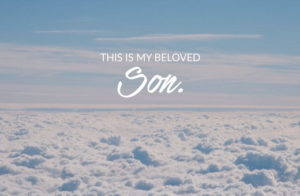 We might very well wonder, along with John the Baptist, why Jesus needed to be baptised. “It is I who need baptism from you,” John said to Jesus, “and yet you come to me!” All those others being baptised in the Jordan by John were doing so as a sign of repentance for their sins and as an expression of their desire to turn around their lives. How could Jesus, the Son of God, be part of this?
We might very well wonder, along with John the Baptist, why Jesus needed to be baptised. “It is I who need baptism from you,” John said to Jesus, “and yet you come to me!” All those others being baptised in the Jordan by John were doing so as a sign of repentance for their sins and as an expression of their desire to turn around their lives. How could Jesus, the Son of God, be part of this?
The first answer to this is that Jesus in so doing was expressing his total solidarity with the human race, of which he was a member. He identified with them, not as a sinner but as a fellow human being. The expression of that solidarity is a much higher priority for him than any social status he might lose by being seen in the close company of confessed sinners. It was a risk he would constantly take because the needs of the sinner were more important to him than his reputation with the self-righteous. It will have its final dramatic expression as Jesus dies on a cross, executed with and like two convicted criminals. For Jesus, there was never such a thing as ‘face’, being valued purely on external appearance.
However, in order to understand what is happening at the River Jordan, we have to go far beyond seeing Jesus’ baptism as a matter of dealing with sinfulness.
What is being really emphasised here is the positive element of Jesus being totally accepted and confirmed by his Father. What is happening here is that Jesus, as he stands there in the River Jordan, is being ‘missioned’ by his Father for the work he is just about to begin. He is here getting the total endorsement of his Father for that work.
We often hear a very simplistic description of the effects of the Sacrament of Baptism as “taking away original sin and making us children of God”. Many, especially those baptised as infants, may tend to see it as a one-off ceremony imposed on them by parents which binds them to a way of life in which they have no further say.
People have even been heard to say, “Oh! I wish I hadn’t been born a Catholic!” There is absolutely no reason why people, after honest reflection, cannot not renounce their Catholic faith in favour of a way of life which gave more meaning to them. However, if we truly understand the full meaning of our Baptism this is not likely to happen.
Baptism is not, as is true of all the sacraments, an isolated ritual. It takes place in the context of our whole life. Whether we are baptised as children or as adults, what primarily is happening is that we become incorporated, em-bodied, into the Christian community.
We become – not passively, but actively – members of the Body of Christ. It can never be something imposed on us against our will. That is why, for adults, there is now a long process of initiation leading up to Baptism and, hopefully a further process of community support after the Baptism has taken place.
It is why adult Baptism is now celebrated in the presence of the whole parish community and at the Easter Vigil. ‘Original sin’ is taken away not so much by some spiritual sleight of hand or by the mumbling of some magic formula, Rather, if one becomes truly incorporated into a living Christian community, the sinful influences that pervade our world become reversed by our exposure to the vision of Jesus and the lived experience of a community based on love, justice and sharing.
Baptist does not and cannot produce its effects in a social vacuum. That is why the Church will not baptise those who have no likelihood of experiencing Christian community.
 Then, of course, like Jesus, our baptism brings with it a serious obligation to share our faith with others both by word and example. It involves much more than simply ‘saving our souls’ and ‘leading sinless lives’.
Then, of course, like Jesus, our baptism brings with it a serious obligation to share our faith with others both by word and example. It involves much more than simply ‘saving our souls’ and ‘leading sinless lives’.
We are called to be living witnesses of the Gospel, to be the salt of the earth, to be a city on a hill, a candle radiating light in the surrounding darkness. We are called, in short, to be united with the others in our Christian community in the building up of God’s Kingdom. (One wonders how often this is the reality when one sees so many Catholics acting like total strangers to each other at a Sunday parish Eucharist!)
All those words of Isaiah, quoted above and applied to Jesus, are to be applied to each one of us as well. Our baptism is not simply some past event recorded in some dusty parish register; it is a living reality which is to be constantly deepened and enriched.
5/1/20 The Epiphany of the Lord
Canon Dr. Daniel Meynen
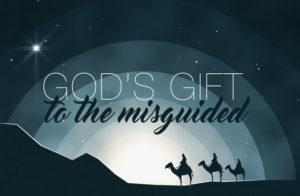 After the birth of Jesus, the Magi, who came from the East, arrived in Jerusalem to worship the Lord of Heaven and earth. We are not certain about the exact amount of time between the birth of the Child God and the arrival of the Magi. But we can make the reasonable assumption that the star of the Lord was seen by the Magi, in the East, long before the birth of Jesus. God disposes all things in number, weight and measure, and it was a very simple thing for him to manifest to the Magi the sign of the star several weeks or months before the birth, according to the flesh, of his Son. Had he not sent his Angel to Joseph to warn him in time that Mary would give birth to the Savior of mankind? Thus, if an Angel, a purely spiritual creature, announced to Joseph the future birth of Jesus, it is completely suitable that, in a similar way, and as a complement to this, a star, a purely material creature, would also announce the coming birth of the Son of God made man. In this way, both the spiritual and material world participated in announcing to mankind the most important birth that has ever taken place. Moreover, isn’t it the same evangelist – Saint Matthew – who relates both the announcement of the Angel and that of the star?
After the birth of Jesus, the Magi, who came from the East, arrived in Jerusalem to worship the Lord of Heaven and earth. We are not certain about the exact amount of time between the birth of the Child God and the arrival of the Magi. But we can make the reasonable assumption that the star of the Lord was seen by the Magi, in the East, long before the birth of Jesus. God disposes all things in number, weight and measure, and it was a very simple thing for him to manifest to the Magi the sign of the star several weeks or months before the birth, according to the flesh, of his Son. Had he not sent his Angel to Joseph to warn him in time that Mary would give birth to the Savior of mankind? Thus, if an Angel, a purely spiritual creature, announced to Joseph the future birth of Jesus, it is completely suitable that, in a similar way, and as a complement to this, a star, a purely material creature, would also announce the coming birth of the Son of God made man. In this way, both the spiritual and material world participated in announcing to mankind the most important birth that has ever taken place. Moreover, isn’t it the same evangelist – Saint Matthew – who relates both the announcement of the Angel and that of the star?
So the Magi arrived in Jerusalem. This is normal: for the Magi assumed that the Messiah would have been born in the principal city of his kingdom. Or, if he were not born there, he would at least have been taken there a few days after his birth. The Magi had no doubt about the dignity of he who was born: they had seen the star, and, after having seen it, they believed, just like Saint John when he saw the empty tomb of the Resurrected One: “Then the other disciple, who reached the tomb first, also went in, and he saw and believed.”
The Magi firmly believed that a Savior had been born, and they expected to find him in Jerusalem. For them, it was inconceivable that the Lord of Heaven and earth would have been relegated to some small town, such as Bethlehem. How great was their surprise, and disappointment, to see King Herod and all Jerusalem become so agitated when they spoke of the birth of the Messiah! Already, without doubt, this lamentable disappointment alerted them, making them more eager to discover whether they were being led into a trap by this second-rate king: Herod. For spiritual men, those who are attentive to the things of God (and the Magi were such men), judge all things, and their mind is quickly alerted to deceptive machinations.
So the Messiah was to be born in Bethlehem. The Holy Spirit had announced this through his prophet Micah. However, Jerusalem did not await the Messiah as she should have. It will be the same at the end of time, when the Lord Jesus will appear on the clouds of Heaven. For, then, it will no longer be the birth of the Son of God alone, but rather the birth of the entire Mystical Body of Christ, which is the Church. At the present time, each believer is in the womb of the Church just as Jesus was in the womb of Mary, his Mother. At the end of time, the Mystical Body of Christ having attained its fullness, all believers, united in the Spirit, will finally be truly born, all of them resembling Christ himself: “Beloved, we are God’s children now; it does not yet appear what we shall be, but we know that when he appears we shall be like him, for we shall see him as he is.”
Herod made enquiries of the Magi: he wanted to know the precise date when the star had appeared to them… When one knows the importance of the planetary revolutions and that of astrology among all peoples, even to this day, it is easy to understand the interest expressed by King Herod in this sort of information. But there is more. If we join together all three of the announcements concerning the Messiah: those made to Mary, to Joseph, and to the Magi, we understand the primordial interest of such information even better. For, when the Son of God took on flesh in the Virgin Mary, it was at this precise instant that the eternity of God penetrated into time, thus bringing time to its fullness: “But when the time had fully come, God sent forth his Son, born of woman.”
 Where did the Magi find the Child Jesus? In a house, says Saint Matthew. But which one? In what town or village? Probably Bethlehem. But Saint Matthew does not say… The Magi knew, but the star told them this by guiding them there. For us, it remains an enigma… Is this not another way of proclaiming the Return of the Lord? Saint Matthew reports the following words of the Lord, speaking of his return: “Then if any one says to you, «Lo, here is the Christ!» or «There he is!» do not believe it… So, if they say to you, «Lo, he is in the wilderness,» do not go out; if they say, «Lo, he is in the inner rooms,» do not believe it.” We do not know where the Magi worshipped the Child Jesus, for, at the end of time, Jesus will not be in one place or another, but instead he will be everywhere at the same time, for the notion of time is always relative to the the notion of place, and when the time is full, place will also be full, so that what is here will also be there, all of creation no longer having any dimension. “For as the lightning comes from the east and shines as far as the west, so will be the coming of the Son of man.”
Where did the Magi find the Child Jesus? In a house, says Saint Matthew. But which one? In what town or village? Probably Bethlehem. But Saint Matthew does not say… The Magi knew, but the star told them this by guiding them there. For us, it remains an enigma… Is this not another way of proclaiming the Return of the Lord? Saint Matthew reports the following words of the Lord, speaking of his return: “Then if any one says to you, «Lo, here is the Christ!» or «There he is!» do not believe it… So, if they say to you, «Lo, he is in the wilderness,» do not go out; if they say, «Lo, he is in the inner rooms,» do not believe it.” We do not know where the Magi worshipped the Child Jesus, for, at the end of time, Jesus will not be in one place or another, but instead he will be everywhere at the same time, for the notion of time is always relative to the the notion of place, and when the time is full, place will also be full, so that what is here will also be there, all of creation no longer having any dimension. “For as the lightning comes from the east and shines as far as the west, so will be the coming of the Son of man.”
